 Exterior of the nearly sold out 108 Leonard (Elliman) and a high-floor availability at 130 William (Corcoran)
Exterior of the nearly sold out 108 Leonard (Elliman) and a high-floor availability at 130 William (Corcoran)
Finding the right New York real estate is never simple, but that is compounded with new construction condos, not only for the sheer volume of choice (nearly 3,000 new units expected to launch in Manhattan through 2025, and as many as 3,600 in Brooklyn and Queens) but for the extra considerations buyers are advised to take.
After finding an apartment, securing any required financing, and having an offer accepted, many think the next step is to move in and kick back. However, a few more steps are recommended, if not legally required, before one can take occupancy.
After finding an apartment, securing any required financing, and having an offer accepted, many think the next step is to move in and kick back. However, a few more steps are recommended, if not legally required, before one can take occupancy.
In this article:
Unit inspections vs. walkthroughs
Contrary to popular belief, new condos often have more problems than resale condos and coops because they haven’t yet been put to the stress test posed by daily living. As a result, buyers are advised to carry out a unit inspection (as advised in Part 2) and do a final walkthrough. It is also important to understand that inspections and walk-throughs are two very different types of inspections that happen at different moments. 111 West 57th Street, #QUADRUPLEX (Sotheby's International Realty)
111 West 57th Street, #QUADRUPLEX (Sotheby's International Realty)
Walk-through
In addition to a unit inspection before the contract signing, you’ll likely want to do a final walk-through before the move-in date. In most cases, the walk-through is carried out by the buyer and their real estate representative, but some buyers also bring other experts along. Among other things, be certain to check for the following when you do your walkthrough:Repairs
- Ensure that repairs or installations that were promised to be completed prior to your move-in date have taken place
Appliances
- Ensure that all appliances have been installed - e.g., if your contract includes a washer and dryer, ensure that it has been delivered and is operational
- Ensure that the stove is working by turning all burners on and off. If you have a gas appliance, check to see if the gas is working; if it isn't, find out why (n.b., if a gas stove is not turning on, it may point to a larger underlying problem in the building)
- Check the temperature of the interior of the refrigerator and freezer
Fixtures
- Ensure that light and dimmer switches are all working
- Ensure that all light fixtures are working
- Ensure that bathroom fixtures and faucets are all working
Water and plumbing
- Flush the toilet to ensure that it is working
- Turn on the shower to ensure that there is adequate water pressure and that the temperature controls are properly set
- Run all the taps to check the drainage
Finishes
- Ensure that the floors, countertops, and other finishes match the quality of those promised in the offer
- Check to see if there are any scratches or scuff marks on the walls, floor, and ceiling (note that these may occur during appliance installation)
- Ensure that all doors and door handles, including closet and exterior doors, are properly installed
- If windows are promised to open, ensure that they do
Electrical and HVAC systems
- Test all electrical outlets to ensure that they are working
- Ensure that all heat and air conditioning units are functioning
Electronics
- Test the intercom, door buzzer, and smart lock system (if applicable) to ensure that they are functional
- If smart home features have been incorporated into your apartment, test to be sure that they are accessible and working
Safety and security
- Check to see if your gas and fire alarms have been installed and are working
- If there is a home security system or video surveillance system, ensure it is installed and working
- Ensure that there is a peephole in your front door, as is required by the Housing Maintenance Code
- Ensure that the floors, countertops, and other finishes match the quality of those promised in the offer
- Check to see if there are any scratches or scuff marks on the walls, floor, and ceiling (note that these may occur during appliance installation)
- Ensure that all doors and door handles, including closet and exterior doors, are properly installed
- If windows are promised to open, ensure that they do
Electrical and HVAC systems
- Test all electrical outlets to ensure that they are working
- Ensure that all heat and air conditioning units are functioning
Electronics
- Test the intercom, door buzzer, and smart lock system (if applicable) to ensure that they are functional
- If smart home features have been incorporated into your apartment, test to be sure that they are accessible and working
Safety and security
- Check to see if your gas and fire alarms have been installed and are working
- If there is a home security system or video surveillance system, ensure it is installed and working
- Ensure that there is a peephole in your front door, as is required by the Housing Maintenance Code
Common red flags
A few common red flags to be on the lookout for include:- Reversed hot and cold water pipes and reversed water faucets
- Faulty ductwork
- Warped and scratched flooring
- Slow drainage in the bathroom or kitchen
- Incomplete work
- Unauthorized replacements of fixtures and appliances
Who and what to bring to a walk-through
- Your phone, to record damages and problems
- Your phone charger, to test electrical outlets
- An expert – if you and your agent are not up to the task, bring a professional inspector or trusted contractor or handyperson along to help identify potential problems
- A note-taking device – your phone or a pen and piece of paper are essential since you’ll also want to create a “punch list” of everything that needs to be completed or fixed before you move in
Next steps
If your walkthrough revealed any lingering problems (e.g., improperly installed appliances, scratched or damaged floors and walls, slow drains, or low water pressure) or missing features (e.g., installation of an unauthorized appliance), at this point, the repairs and replacements are still the responsibility of the sponsor. If you don’t want to wait for the unit’s sponsor to address the problems, estimate the cost of addressing the repairs and replacements yourself and ask that the amount be deducted from your closing costs.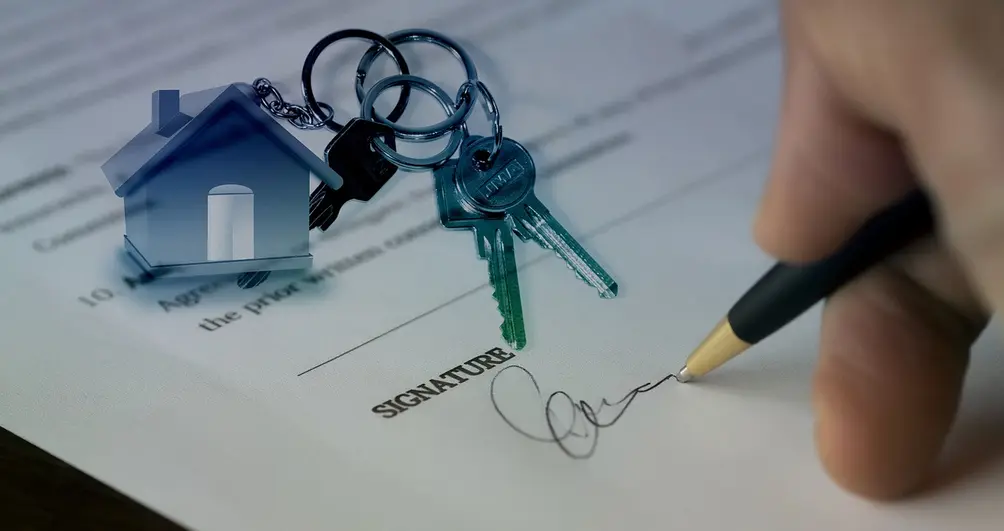 Image by Gerd Altmann from Pixabay
Image by Gerd Altmann from Pixabay
Closing, Moving In, and Establishing an Outside Date
Closing
In most cases, sponsors expect potential buyers to close within 30 days of written delivery of the closing. This is known as the “30-Day Alert.” If a buyer fails to do so, sponsors will typically impose a penalty (in some cases, up to $1,000 a day). Since 30 days is a short time to close, many real estate attorneys insist on including a contingency clause that provides a 10 to 15-day grace period.Certificate of Occupancy
While closes often take longer than expected due to a delay on the buyer’s side (e.g., the financing approval is delayed), in many cases, the delay in new construction condos is the developer’s fault. This is usually due to the fact that the developer hasn’t yet been able to obtain a Certificate of Occupancy (CO) or Temporary Certificate of Occupancy (TCO). In most new construction condos, the close happens after a TCO is issued. A TCO is issued when the Department of Buildings has determined that a building is safe to occupy but still has one or more outstanding issues that need to be resolved before a final CO can be issued. Notably, you can’t close with a CO or TCO.The importance of establishing an outside date
From supply chain delays that slow construction and installations to Department of Building delays that prevent the timely issuance of the paperwork needed to declare a building inhabitable, it often takes longer than expected for a building to receive its TCO. For buyers, this can cause a range of problems, including with lenders. As a result, it is important for buyers to establish an outside date—an agreed-upon date by which the construction must be completed. In most cases, if the construction isn’t completed by these dates, the potential buyer is free to walk away without penalty or with only a partial penalty.Closing costs and fees
Closing costs are higher when purchasing a condo than a coop. In most cases, closing costs on New York City condos are at least 3% and may run as high as 5% of the unit’s value. Most of your closing costs will come in the form of transfer taxes, which is 2.625% on all units worth more than $500,000. If your unit costs more than $1 million, you’ll also be on the hook for an additional mansion tax. Other potential costs include a mortgage recording tax, though it is only applicable if your unit is financed.In addition to applicable taxes, there are several costs related to the move-in. For example, most condos will ask for a move-in fee to ensure they can cover the cost of any move-in-related damages (e.g., scratches and dents to floors, walls, and elevators). Depending on the building, the move-in fee will be anywhere from $500 to $1,000, though some buildings also ask for a larger damage deposit.
How and when to take possession of a new construction condo
Once you officially close, you will get the keys to your unit, but you may or may not move in immediately. In some new construction condos, your unit may be complete, but the unit may have a TCO due to ongoing construction in common areas (e.g., the units may be complete while the lobby or gym remains under construction). As a result, you may or may not want to delay your move-in. You may also want to hire an interior designer and your own contractors (e.g., painters) to do additional work on the unit prior to your move-in date. For all these reasons, how and when you take possession of your new construction condo and actually move in are usually different dates. Image by Muhammad Abubakar from Pixabay
Image by Muhammad Abubakar from Pixabay
After move-in
Common charges
After you move into a condo, in addition to covering your mortgage, you’ll have monthly fees. Common charges in a condo can vary widely, depending on the type of building and amenities. More information on the structure of fees may be found here.Warranties
When you buy a new construction condo, the appliances are new, which means most will be under warranty, at least for the first one to three years. After that, there are no guarantees, which is why buyers sometimes purchase a home warranty. In fact, home warranties not only cover major appliance repairs but also home-systems repairs for an extended period. If you don’t like surprises, investing in a home warranty may be a great idea.Assessments
While an assessment is unlikely during the first decade of your building’s life, if a major repair is needed, it is possible that the condo board will decide to implement an assessment to cover the costs. In most cases, there is little one can do when hit with a high assessment. Fortunately, in most cases, assessments are added as a monthly charge on top of one’s fees and spread out over several years.Unit appreciation and resale potential
While there are exceptions (e.g., small boutique condos in Manhattan have held steady over the past decade), condos tend to be an exceptional investment in New York City. Since 2010, many condo buyers, especially in Brooklyn and Queens, have seen their values double in just a decade. Location is often a key factor, but the resale value of condos is also determined by other factors, including how many units are owner-occupied. Unless the condo has failed to attract buyers or is failing to age well (e.g., is plagued by structural issues), it will likely yield an enviable return over its first five to ten years.Rules against flipping your unit
Some, but not all, condos and coops have a flip tax. While flip taxes on HDFC coops can be as high as 30% to discourage buyers from frequently flipping their units, condos that have flip taxes generally only charge between 1% and 3%. Also, in many condos, flip taxes only apply to buyers who flip within a certain timeframe (e.g., the first two to five years). But potential flip taxes aren’t the only reason selling after just a few years is not advantageous. Unless you’ve owned and lived in your unit for at least two years, you’ll also have to pay capital gain taxes on the sale of your unit.Renting your unit
While coops often have strict rules against subletting, especially in the first two to three years following the purchase, condos tend to be far more flexible. In fact, many condos are purchased as investment properties and rented out from day one. But that doesn’t mean that there are no restrictions. Depending on the condo’s by-laws, you may have to pay a monthly fee to rent your unit. In addition, most condo boards will want to screen your tenants (e.g., they may ask for credit and housing court checks). The condo board may also reserve the right of first refusal on the lease.While much of the information presented in this article can be applied to condos that are still under construction, the following listings in new developments are open for immediate occupancy. However, they may not be available for much longer: Market data shows that the buildings are over 75% sold.
New development condos approaching sellout
Upper West Side
88% sold
Vandewater
Vandewater
12 one- to four-beds from $1.31M
Morningside Heights
32 stories | 178 units
Delivery Q1 2021
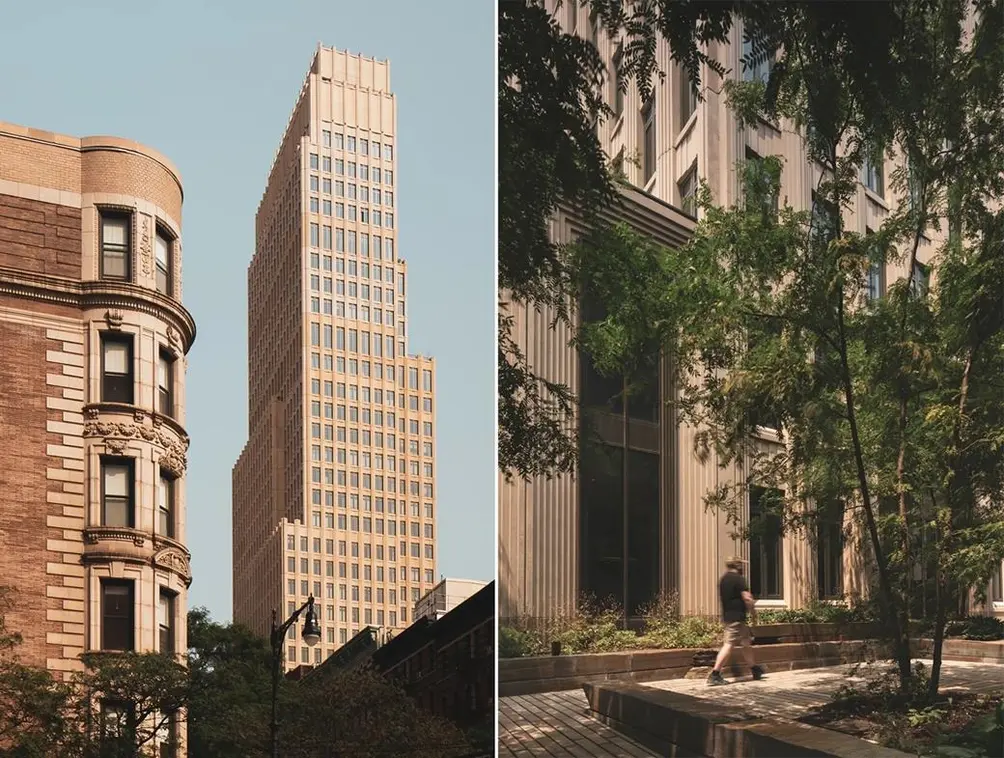 Vandewater
Vandewater

Vandewater, #10H (Brown Harris Stevens Development Marketing LLC)
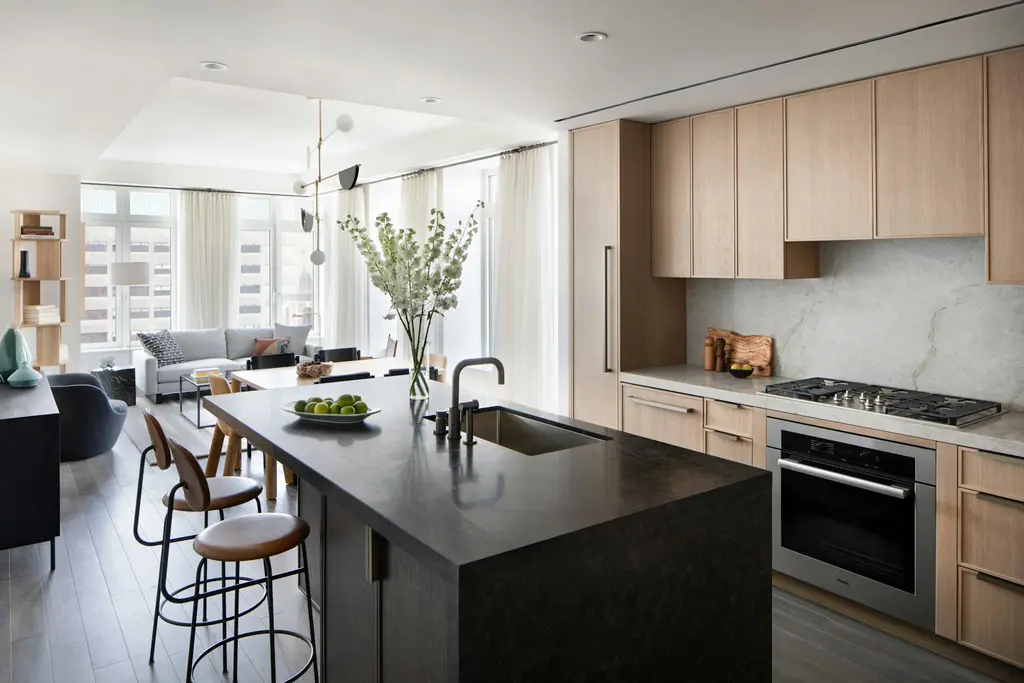
79% sold
The Westly
The Westly
6 two- to five-beds from $2.95M
Upper West Side
20 stories | 51 units
Delivery Q2 2022
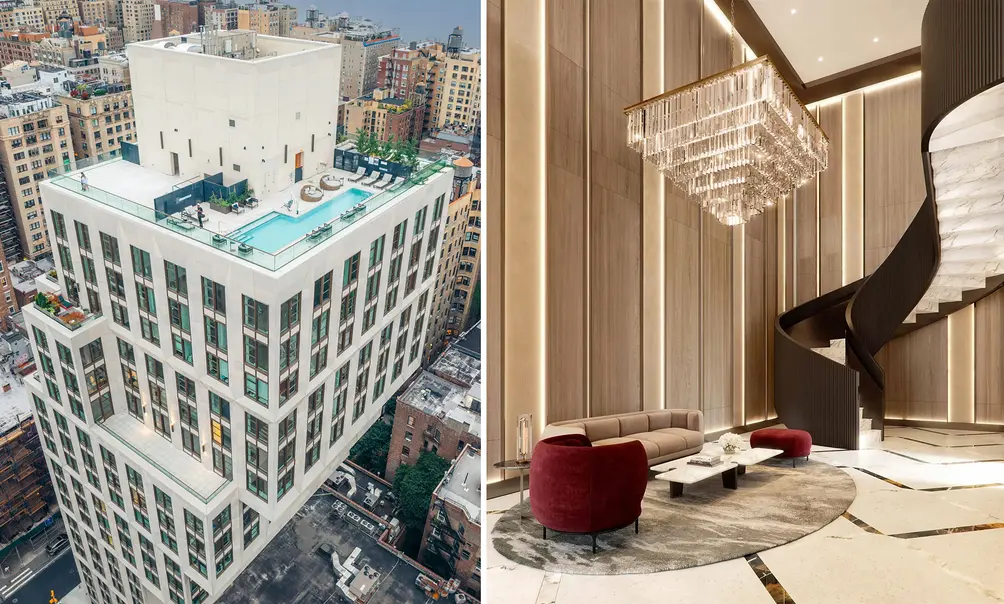 The Westly (Reuveni LLC)
The Westly (Reuveni LLC)
The Westly, #16C
$6,375,000
Riverside Dr./West End Ave. | Condominium | 3 Bedrooms, 3.5 Baths | 2,467 ft2

The Westly, #16C (Reuveni LLC)
96% sold
200 Amsterdam
200 Amsterdam
7 two- to four-beds from $3.95M
Lincoln Center
52 stories | 112 units
Delivery Q2 2021
 200 Amsterdam (Serhant)
200 Amsterdam (Serhant)
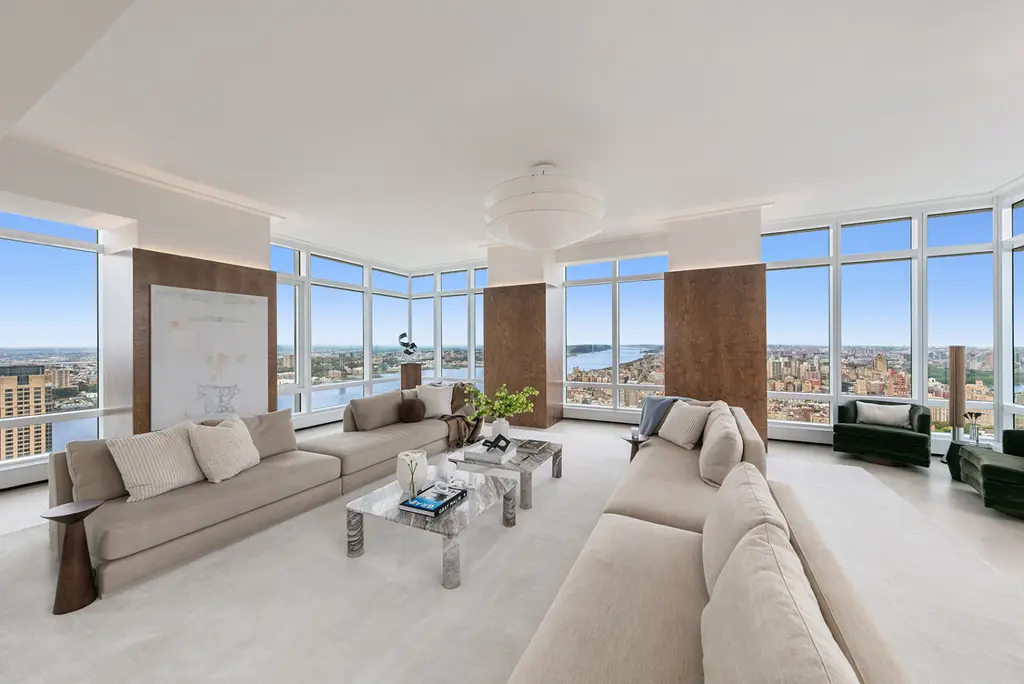
200 Amsterdam, #PH2 (Serhant)
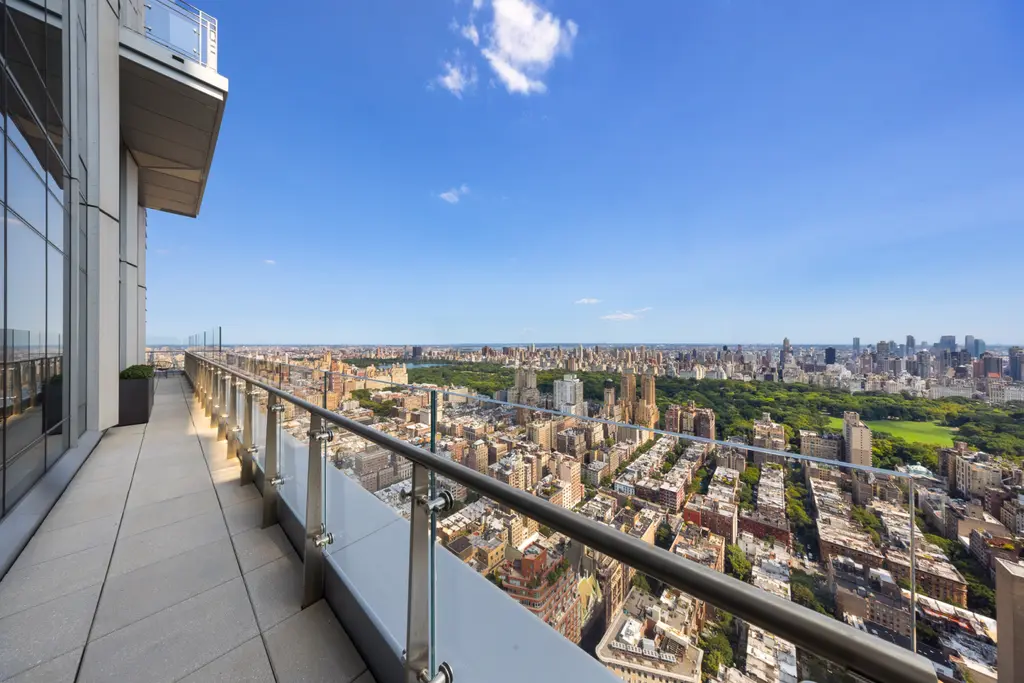
Upper East Side
78% sold
1289 Lexington Avenue
1289 Lexington Avenue
6 three- to five-beds from $3.95M
Carnegie Hill
18 stories | 61 units
Delivery Q2 2019
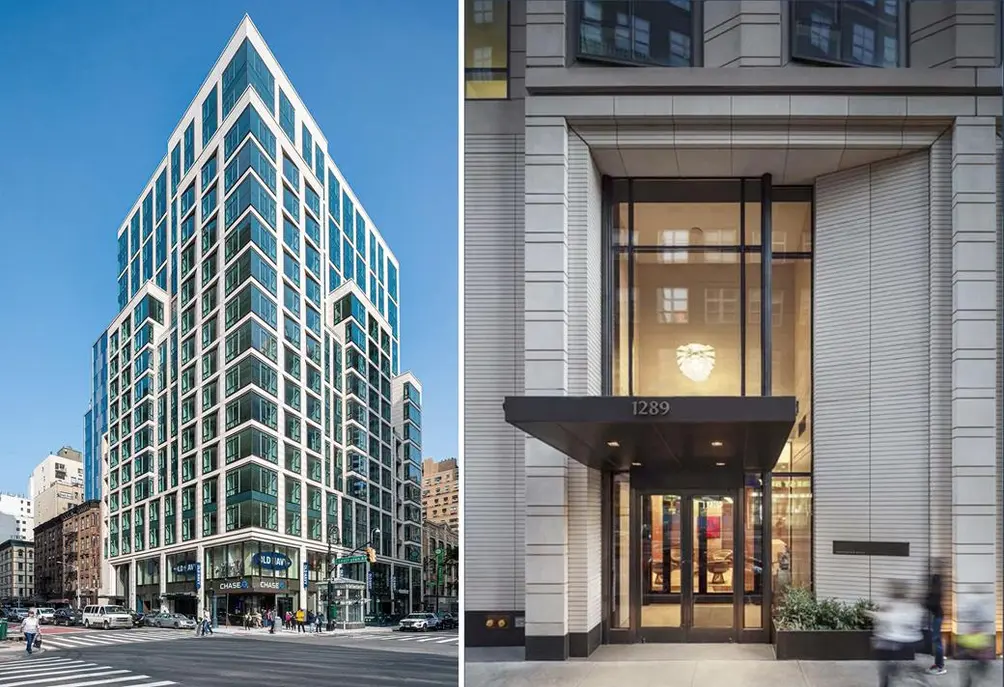 1289 Lexington Avenue (CityRealty)
1289 Lexington Avenue (CityRealty)
1289 Lexington Avenue, #18C
$5,100,000
Carnegie Hill | Condominium | 3 Bedrooms, 3.5 Baths | 2,792 ft2
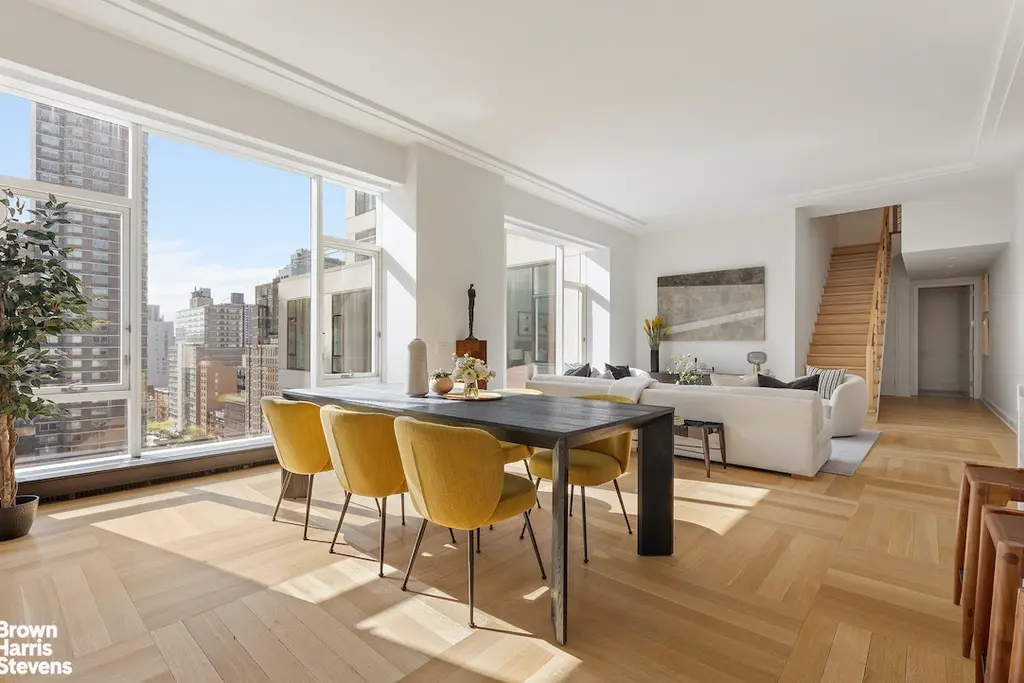
1289 Lexington Avenue, #18C (Brown Harris Stevens Residential Sales LLC)
81% sold
200 East 75th Street
200 East 75th Street
6 three- to five-beds from $5.15M
Lenox Hill
18 stories | 36 units
Delivery Q3 2025 (anticipated)
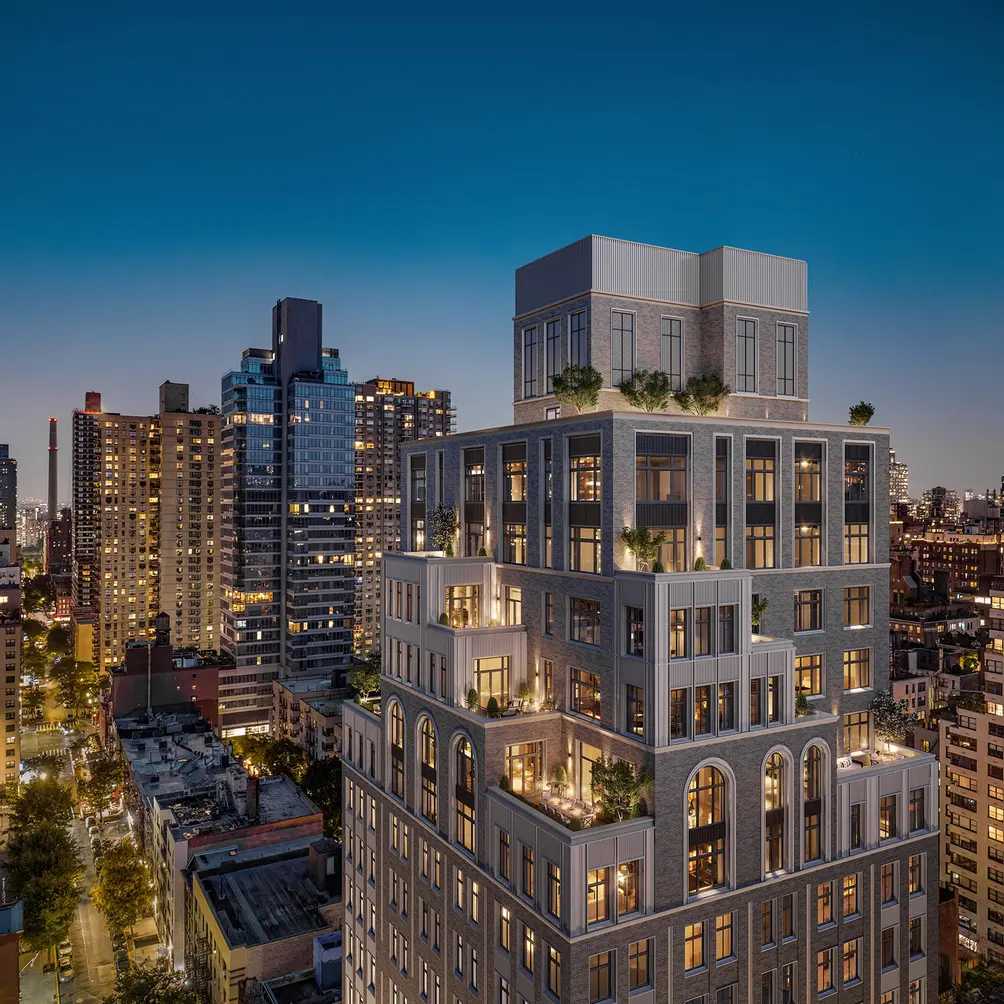 200 East 75th Street (Compass)
200 East 75th Street (Compass)

200 East 75th Street, #11B (Compass)

82% sold
The Treadwell
The Treadwell
6 two- to four-beds from $2.48M
Lenox Hill
28 stories | 66 units
Delivery Q1 2024
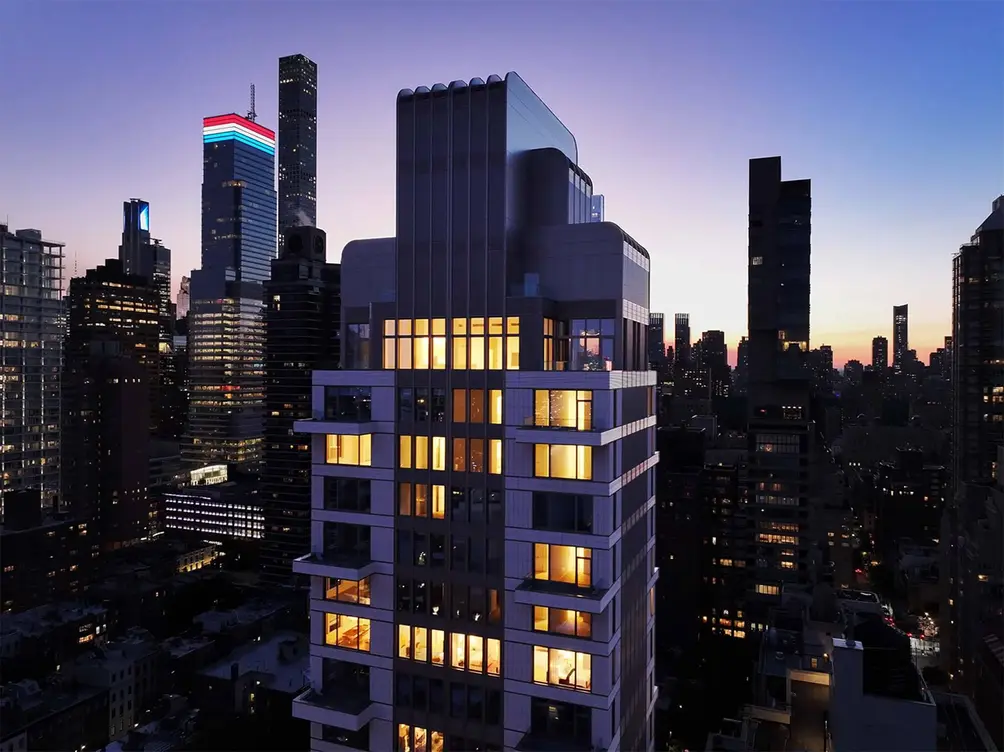 The Treadwell (Brown Harris Stevens)
The Treadwell (Brown Harris Stevens)

The Treadwell, #23A (Brown Harris Stevens Development Marketing LLC)

Midtown
82% sold
111 West 57th Street
111 West 57th Street
7 three- to five-beds from $13.8M
Billionaires' Row/Midtown West
84 stories | 60 units
Delivery Q2 2020
 111 West 57th Street (Sotheby's International Realty)
111 West 57th Street (Sotheby's International Realty)
Would you like to tour any of these properties?
Just complete the info below.
Or call us at (212) 755-5544
111 West 57th Street, #QUADPLEX80
$110,000,000
Midtown West | Condominium | 5 Bedrooms, 6+ Baths | 11,480 ft2

111 West 57th Street, #QUADPLEX80 (Sothebys International Realty)

76% sold
611 West 56th Street
611 West 56th Street
10 one- to four-beds from $888K
Hell's Kitchen/Midtown West
37 stories | 77 units
Delivery Q4 2021
 611 West 56th Street (Douglas Elliman)
611 West 56th Street (Douglas Elliman)
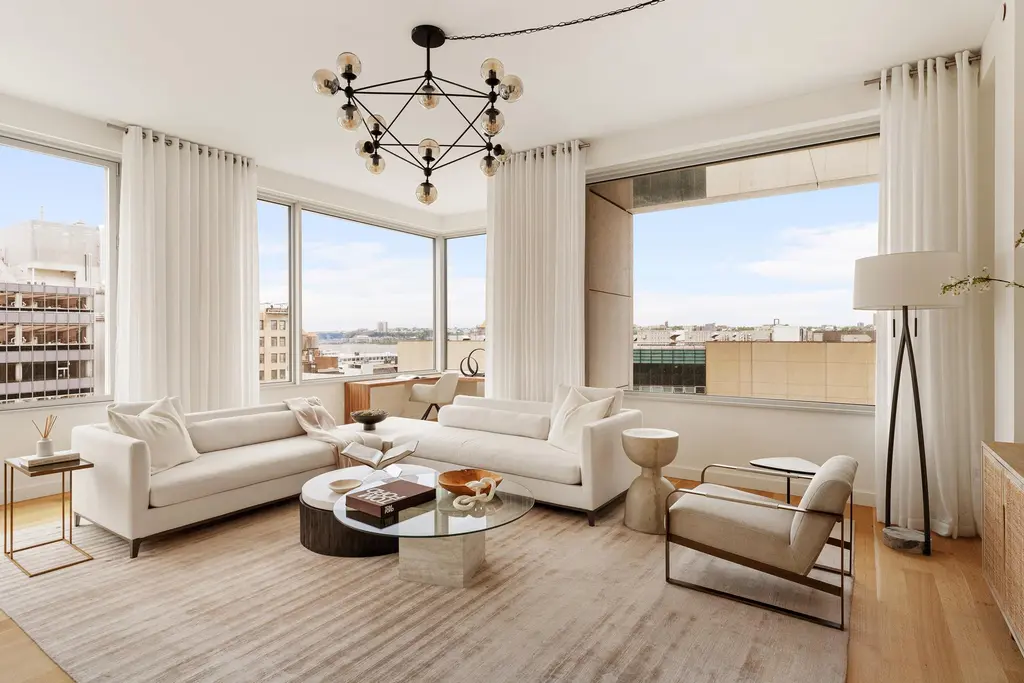
611 West 56th Street, #12 (Douglas Elliman Real Estate)
98% sold
505 W 43
505 W 43
7 studio to three-beds from $805K
Hell's Kitchen/Midtown West
16 stories | 123 units
Delivery Q3 2019
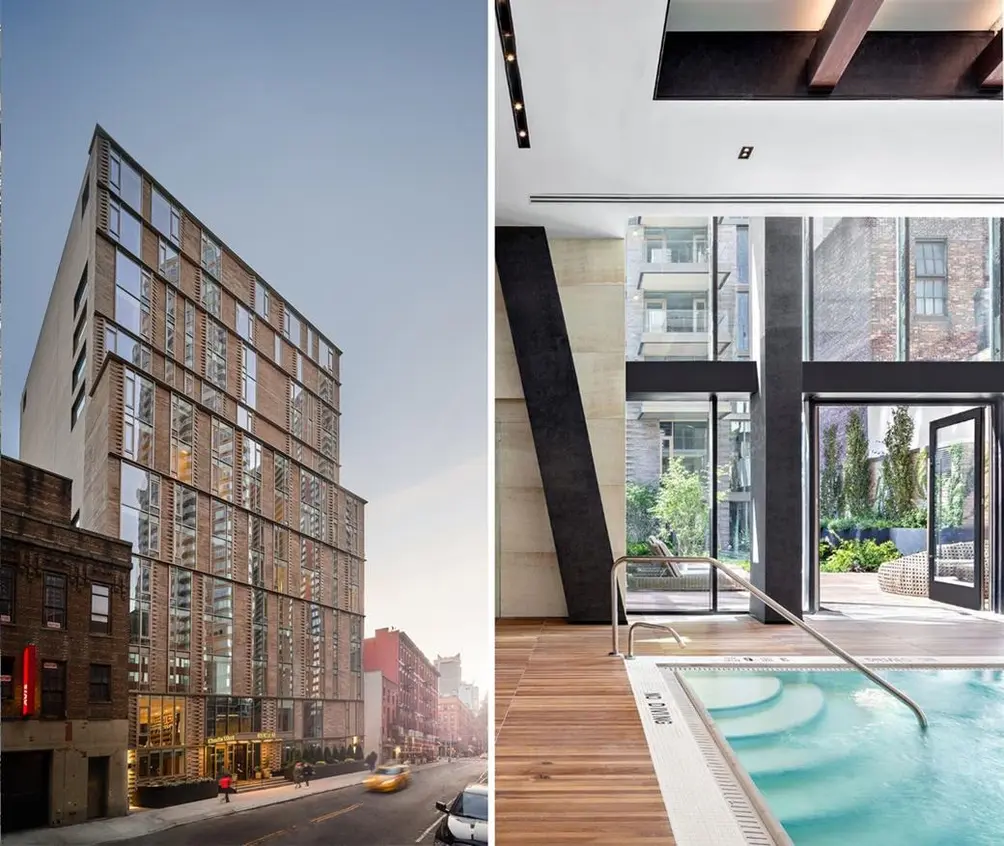 505 W 43
505 W 43
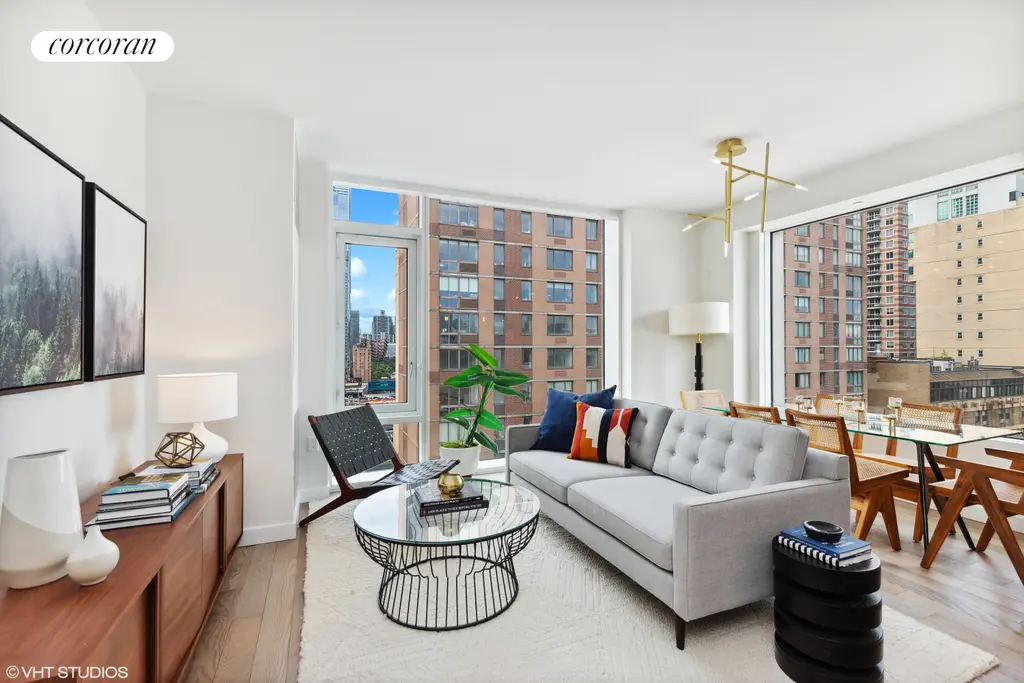
505 W 43, #12H (Corcoran Sunshine Marketing Group)
Over 90% sold
520 Fifth Avenue
520 Fifth Avenue
3 three-beds from $5.95M
Midtown West
55 stories | 129 units
Delivery Q4 2025 (anticipated)
 520 Fifth Avenue (Corcoran Group)
520 Fifth Avenue (Corcoran Group)

520 Fifth Avenue, #PH79 (Corcoran Sunshine Marketing Group)
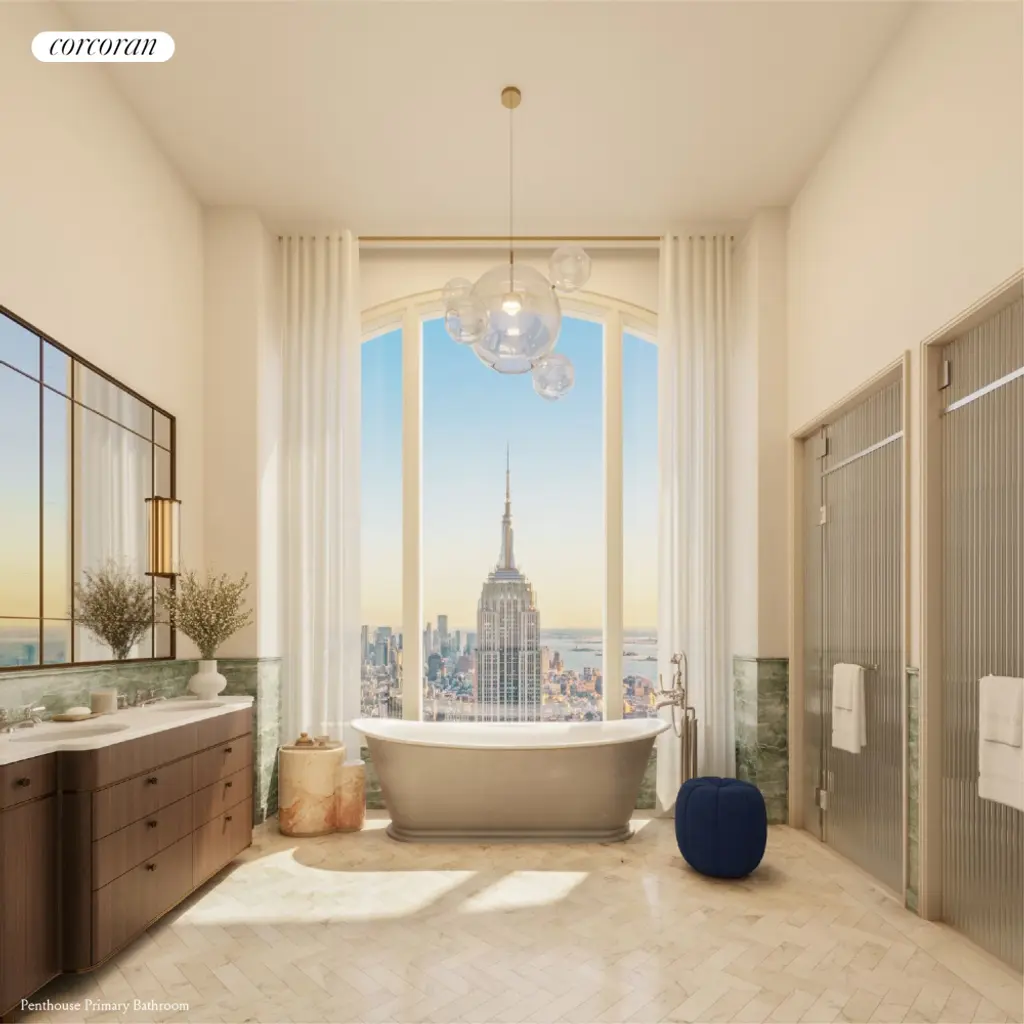
83% sold
35 Hudson Yards
35 Hudson Yards
8 two- to four-beds from $4.75M
Midtown West
71 stories | 143 units
Delivery Q3 2019
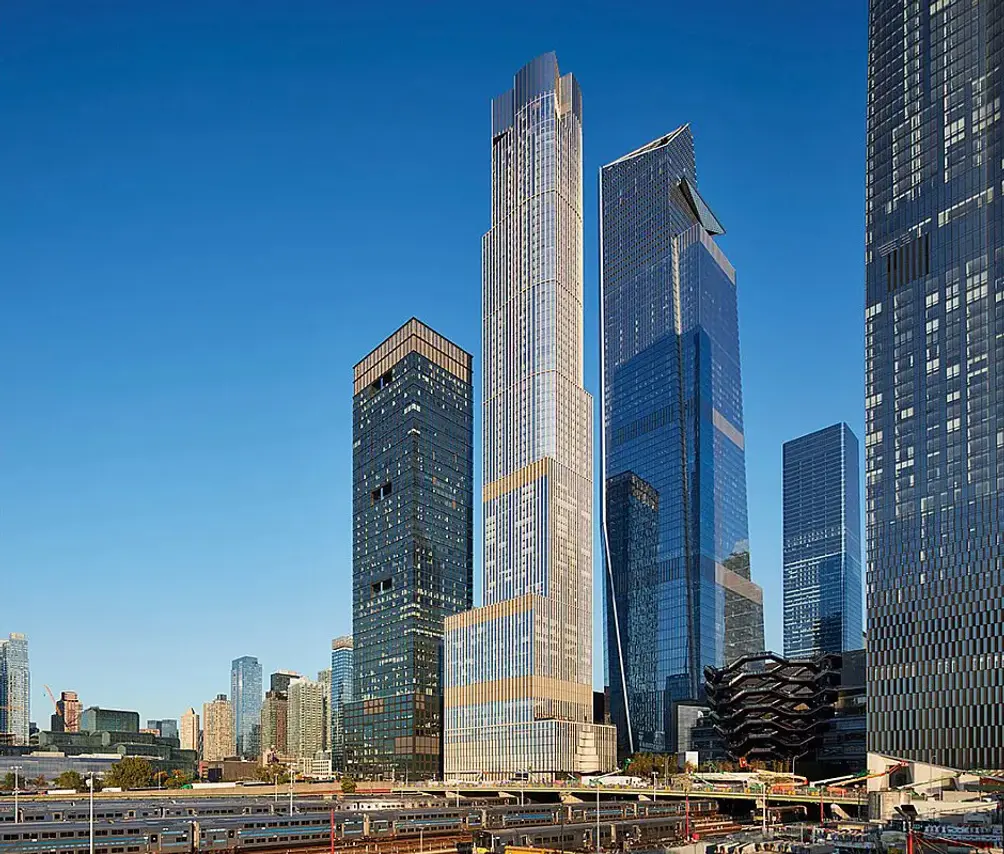 35 Hudson Yards (CityRealty)
35 Hudson Yards (CityRealty)
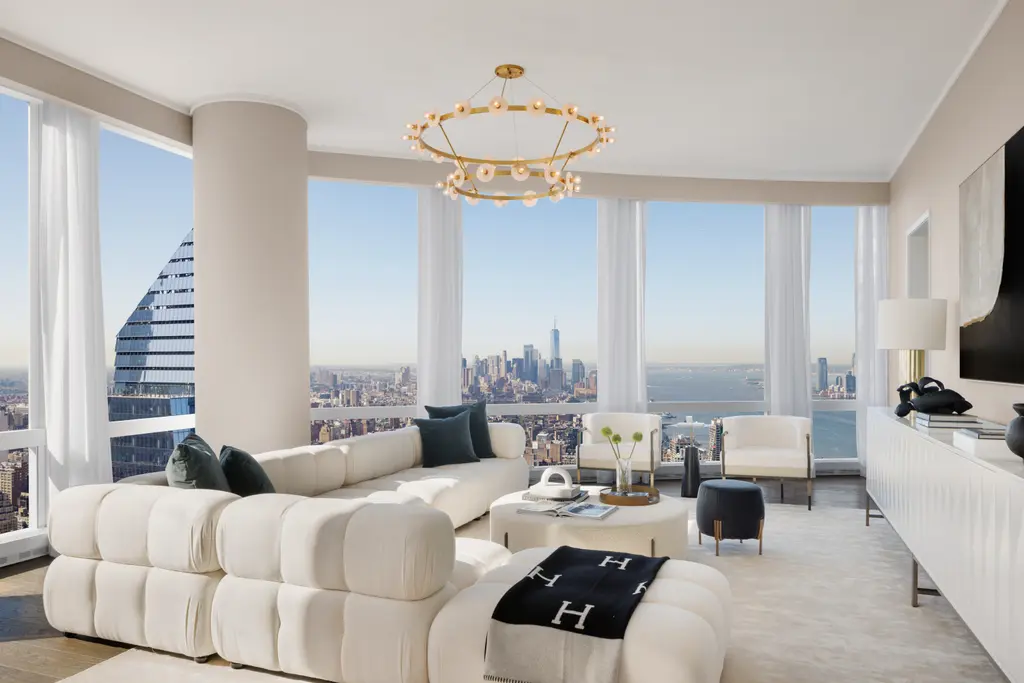
35 Hudson Yards, #7403 (Corcoran Sunshine Marketing Group)
Downtown
Over 95% sold
277 Fifth Avenue
277 Fifth Avenue
6 two- to four-beds from $3.65M
NoMad/Flatiron District
55 stories | 129 units
Delivery Q4 2018
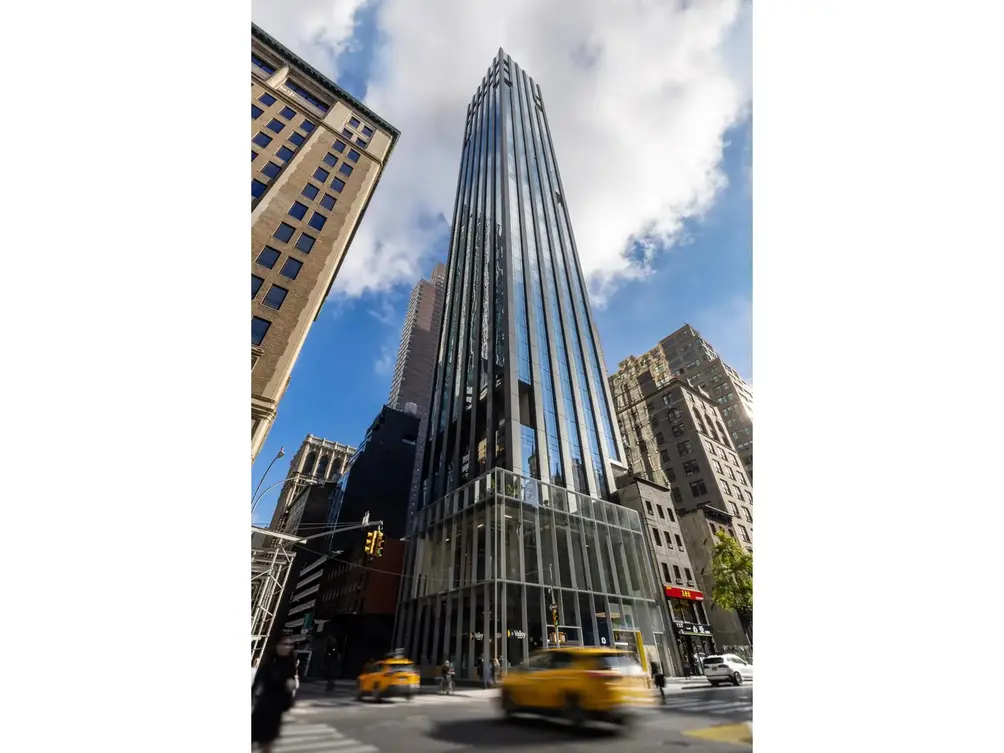 277 Fifth Avenue (Corcoran Group)
277 Fifth Avenue (Corcoran Group)
277 Fifth Avenue, #49B
$4,990,000 (-.1%)
Flatiron/Union Square | Condominium | 2 Bedrooms, 2 Baths | 1,557 ft2
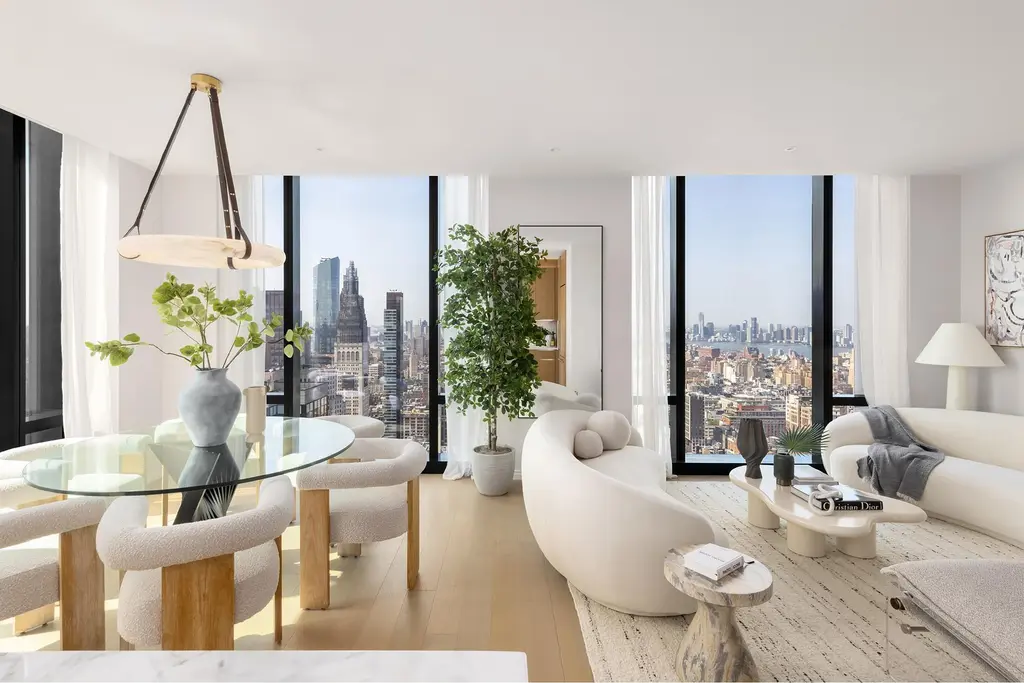
277 Fifth Avenue, #49B (Douglas Elliman Real Estate)
83% sold
Maverick
Maverick
7 two- to four-beds from $2.35M
Chelsea
21 stories | 87 units
Delivery Q2 2022
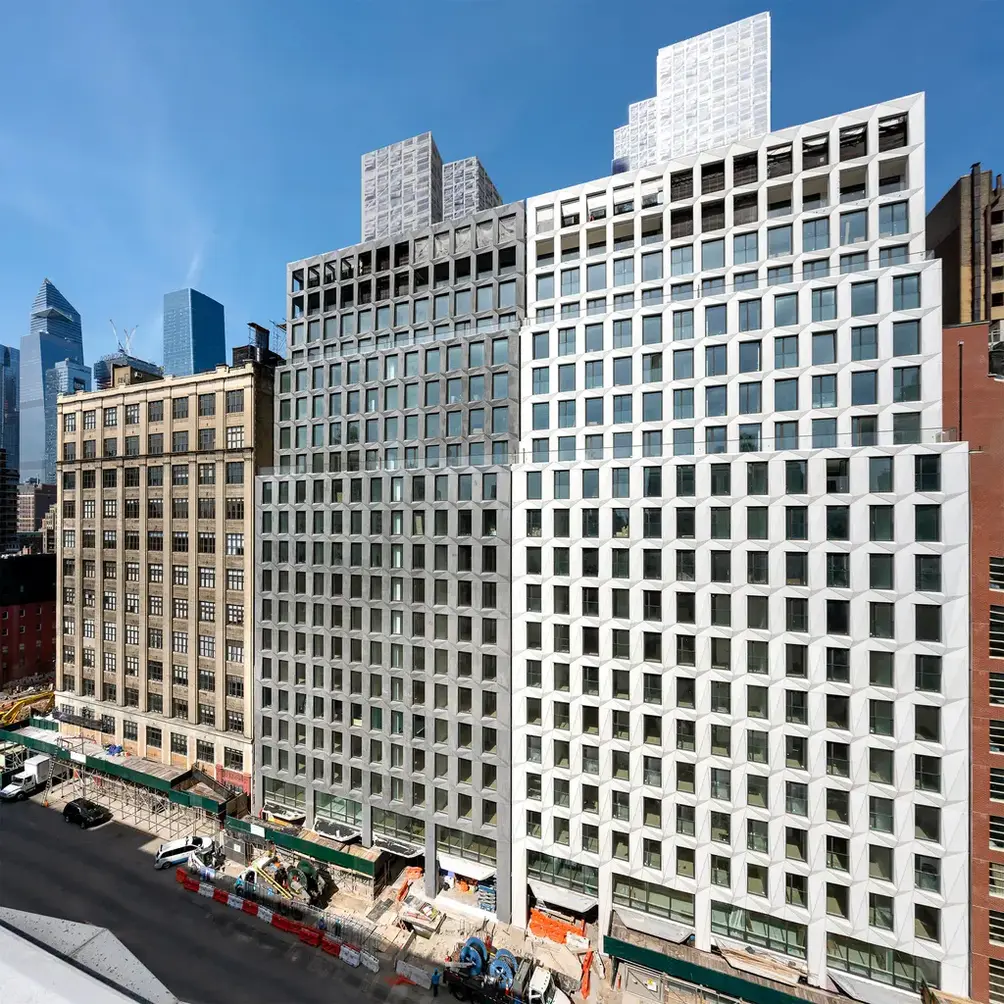 Maverick (CityRealty)
Maverick (CityRealty)
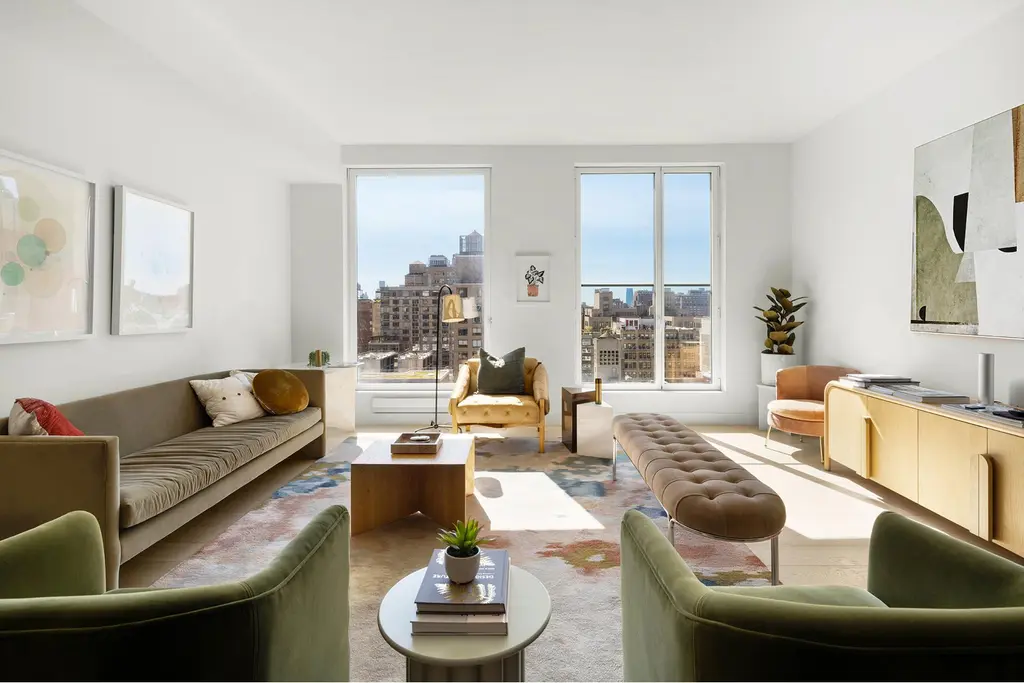
Maverick, #16C (Douglas Elliman Real Estate)
86% sold
The Cortland
The Cortland
10 one- to four-beds from $2.5M
West Chelsea
26 stories | 144 units
Delivery Q2 2022
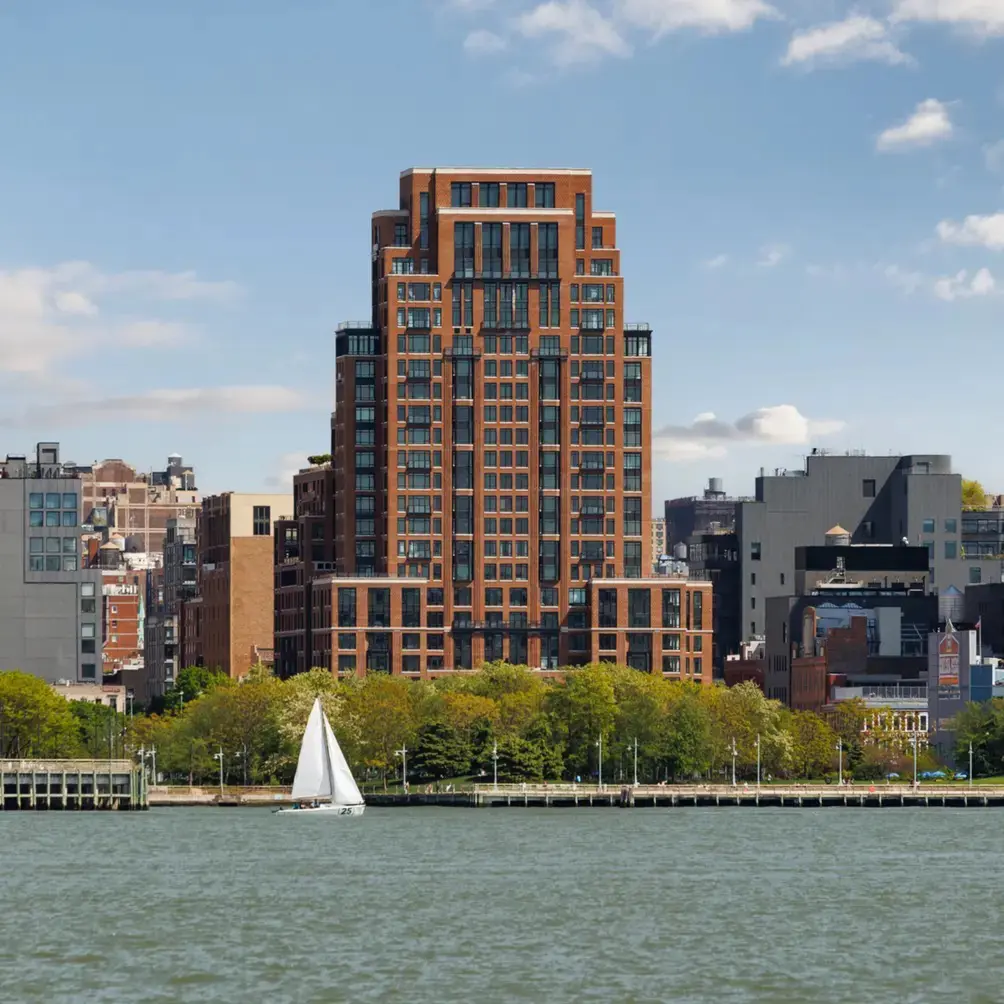 The Cortland (CityRealty)
The Cortland (CityRealty)
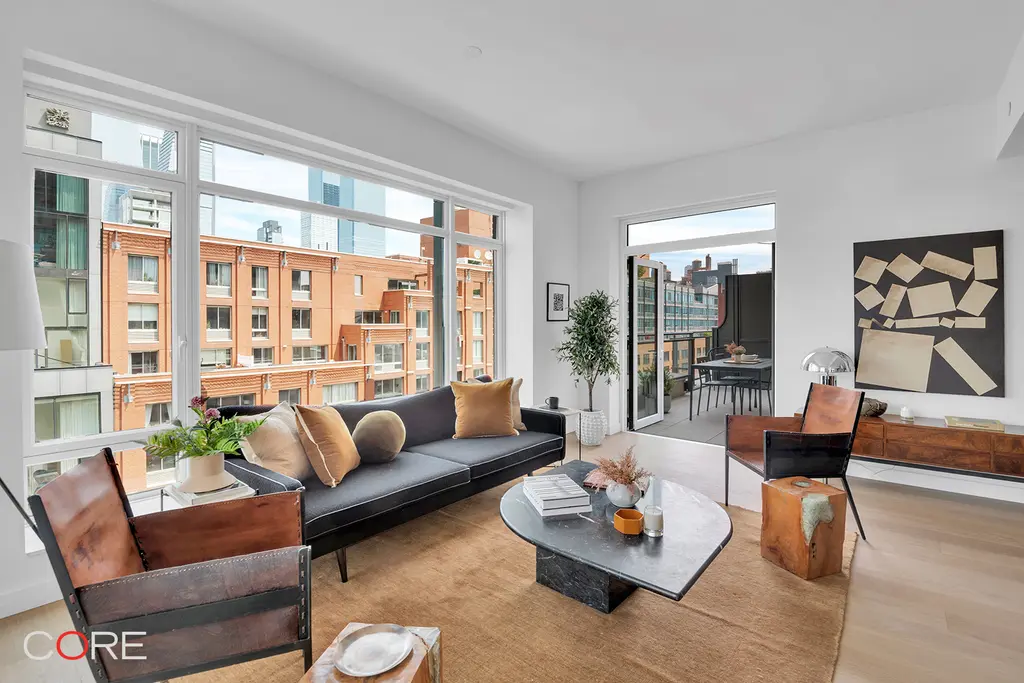
The Cortland, #12BE (CORE Group Marketing LLC)
98% sold
Greenwich West
Greenwich West
8 studio to three-beds from $1.36M
Hudson Square/Soho
27 stories | 170 units
Delivery Q3 2020
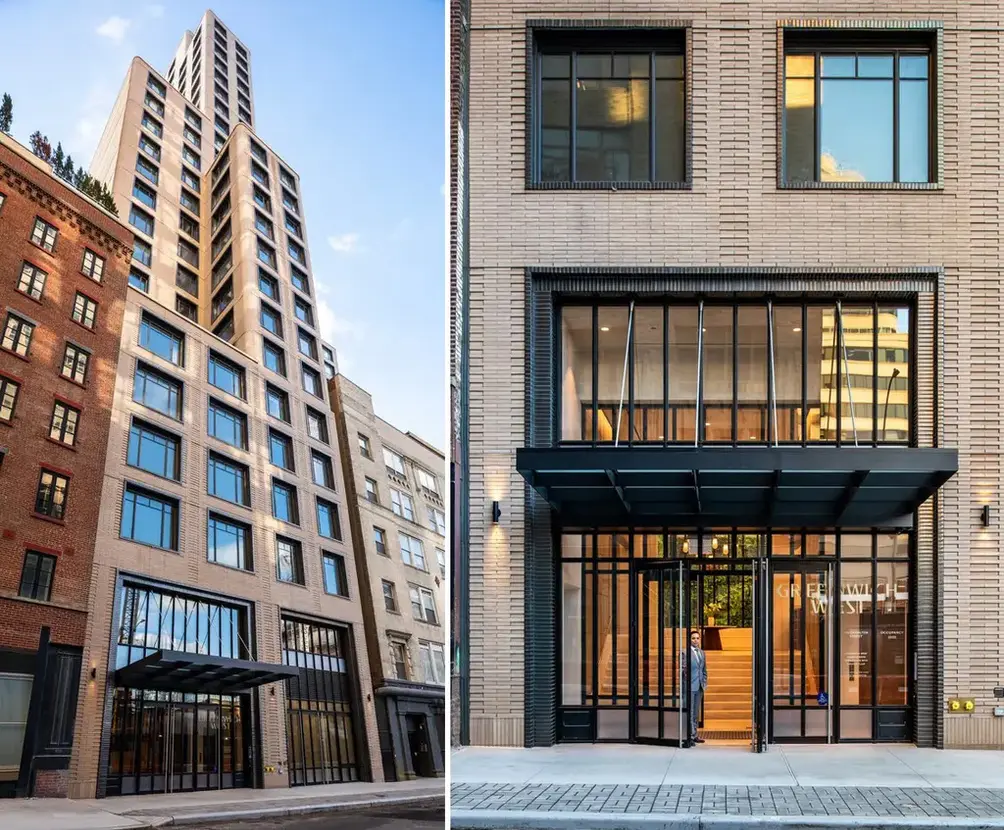 Greenwich West (CityRealty)
Greenwich West (CityRealty)
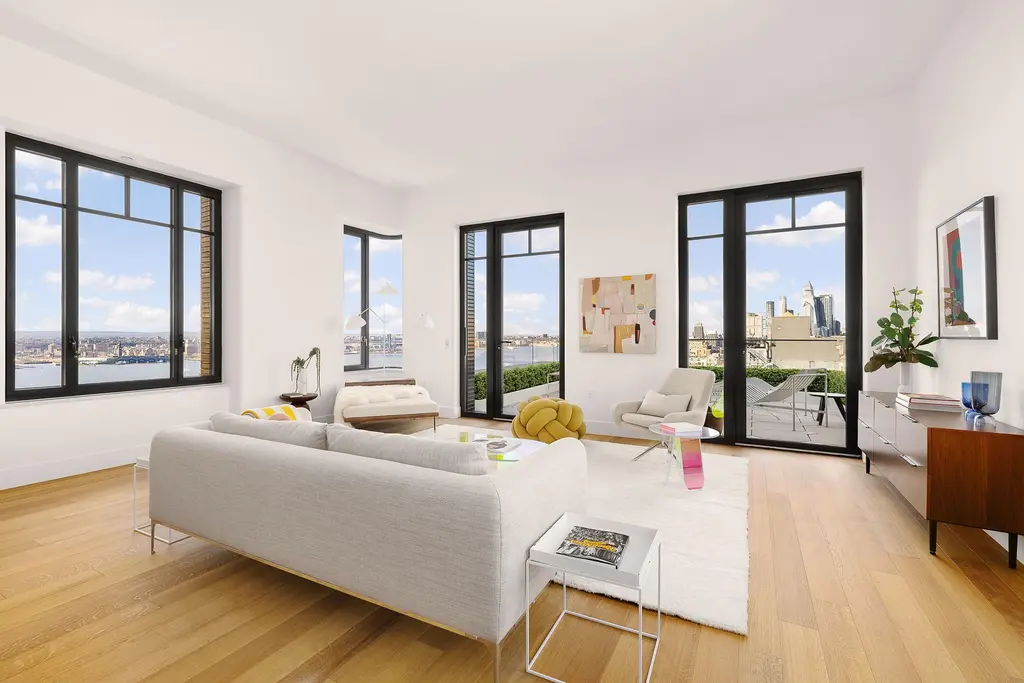
Greenwich West, #PH29C (ALIGNMENT RE LLC)
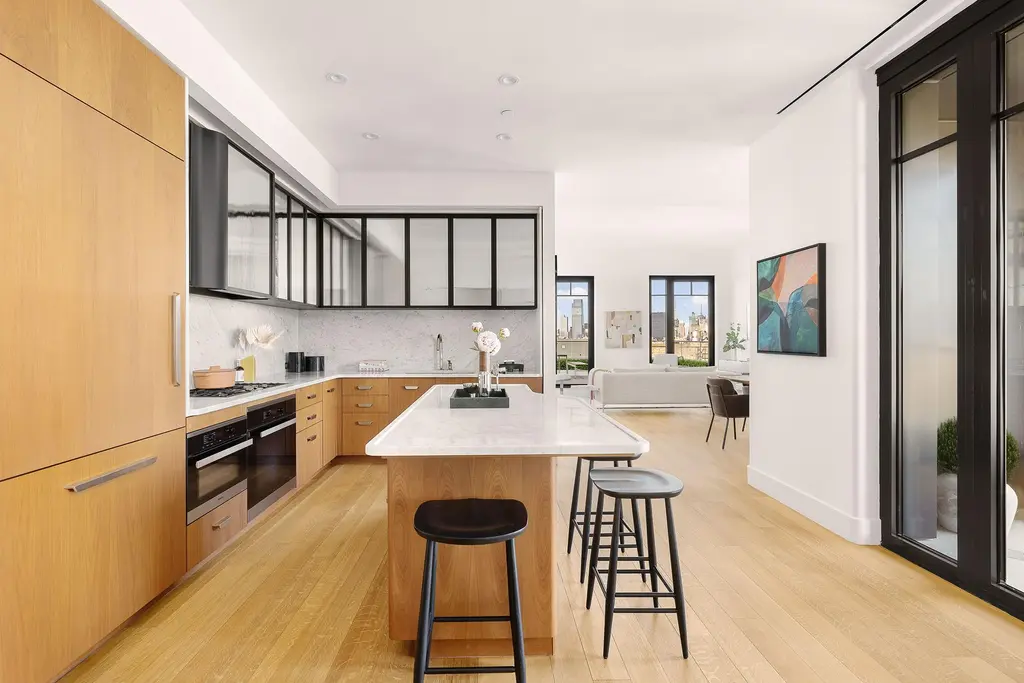
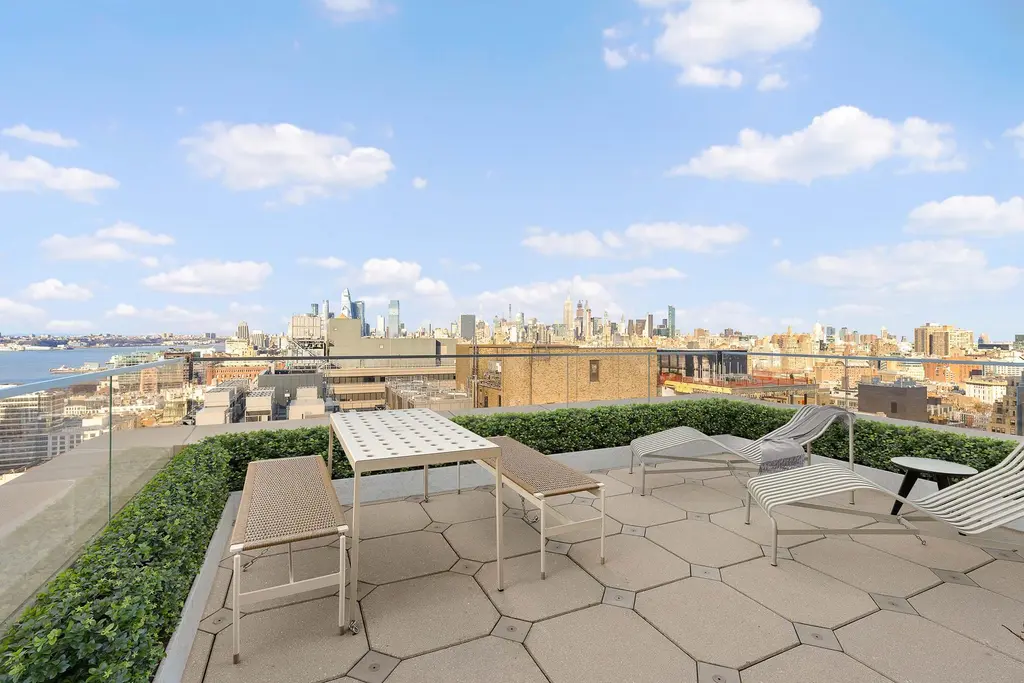
92% sold
108 Leonard Street
108 Leonard Street
7 one- to five-beds from $2.3M
Tribeca
13 stories | 166 units
Delivery Q3 2019
 108 Leonard Street (Douglas Elliman)
108 Leonard Street (Douglas Elliman)

108 Leonard, #8B (Douglas Elliman Real Estate)
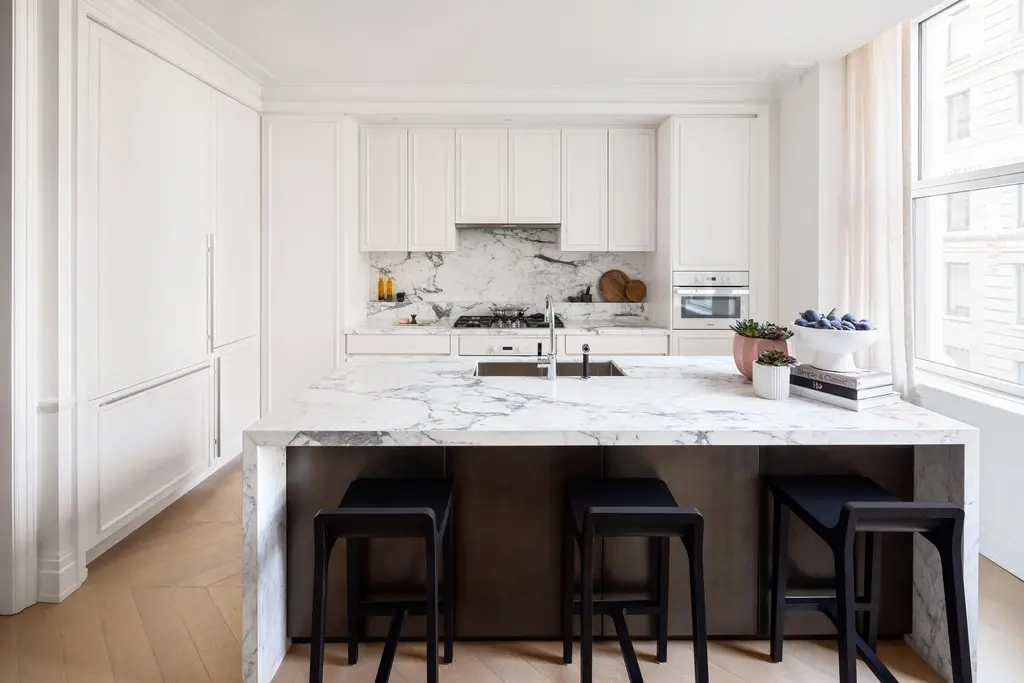
96% sold
130 William
130 William
12 one- to four-beds from $1.5M
Financial District
61 stories | 242 units
Delivery Q4 2020
 130 William (right)
130 William (right)

130 William, #64B (Corcoran Sunshine Marketing Group)

Brooklyn
Over 90% sold
Quay Tower
Quay Tower
9 two- to six-beds from $2.09M
Brooklyn Heights
30 stories | 121 units
Delivery Q1 2020
 Quay Tower (CityRealty)
Quay Tower (CityRealty)
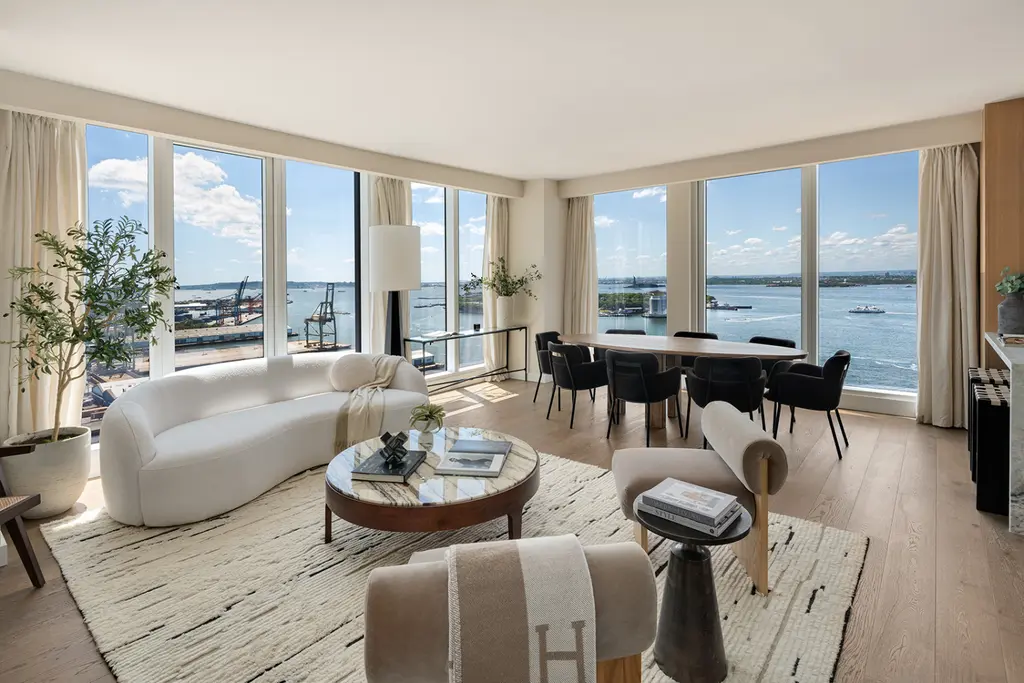
Quay Tower, #24A (Serhant)
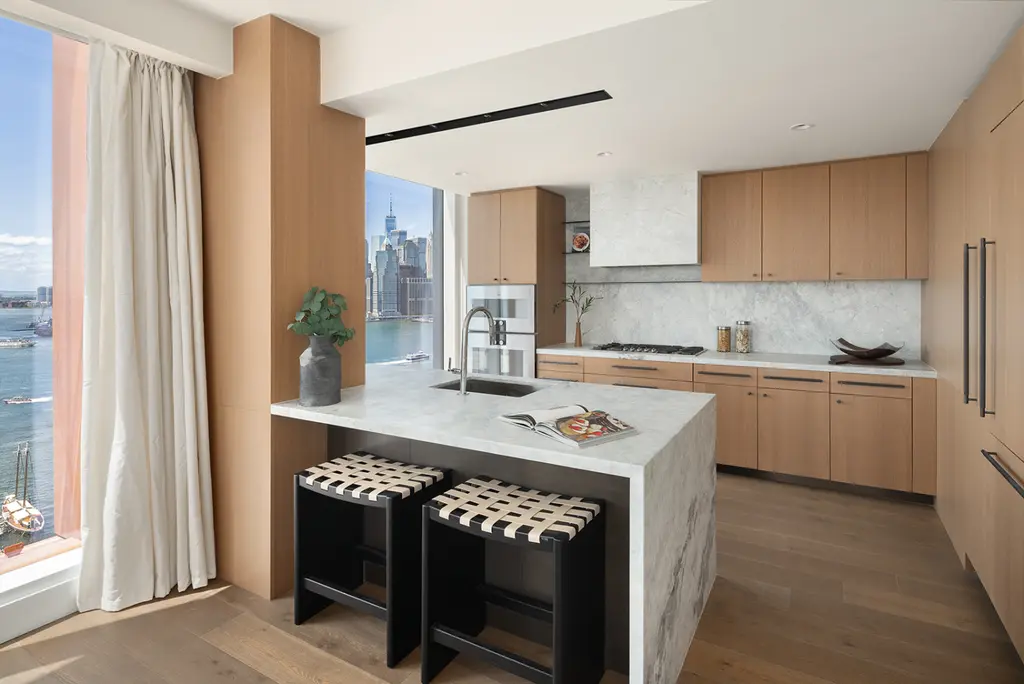
Over 95% sold
The Brooklyn Grove
The Brooklyn Grove
15 studio to three-beds from $675K
Downtown Brooklyn
27 stories | 184 units
Delivery Q2 2019
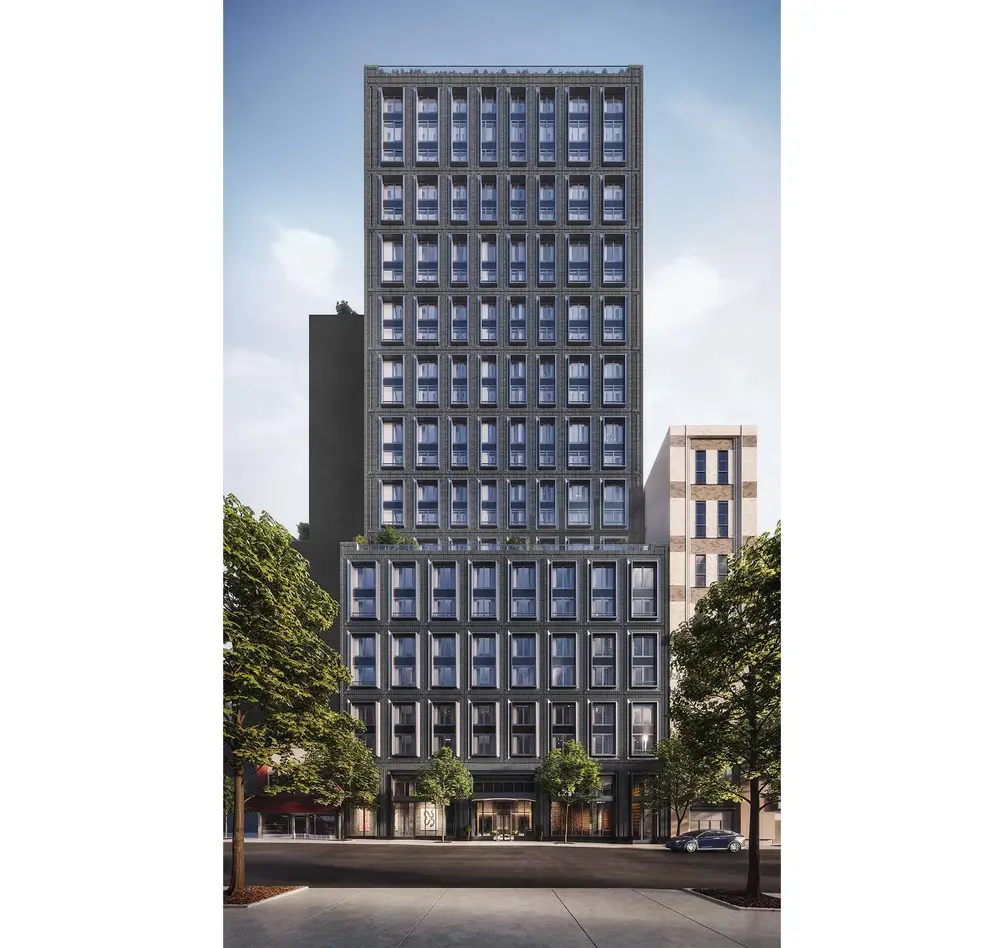 The Brooklyn Grove (Nest Seekers LLC)
The Brooklyn Grove (Nest Seekers LLC)
The Brooklyn Grove, #25A
$1,575,000
Downtown Brooklyn | Condominium | 2 Bedrooms, 2 Baths | 1,161 ft2
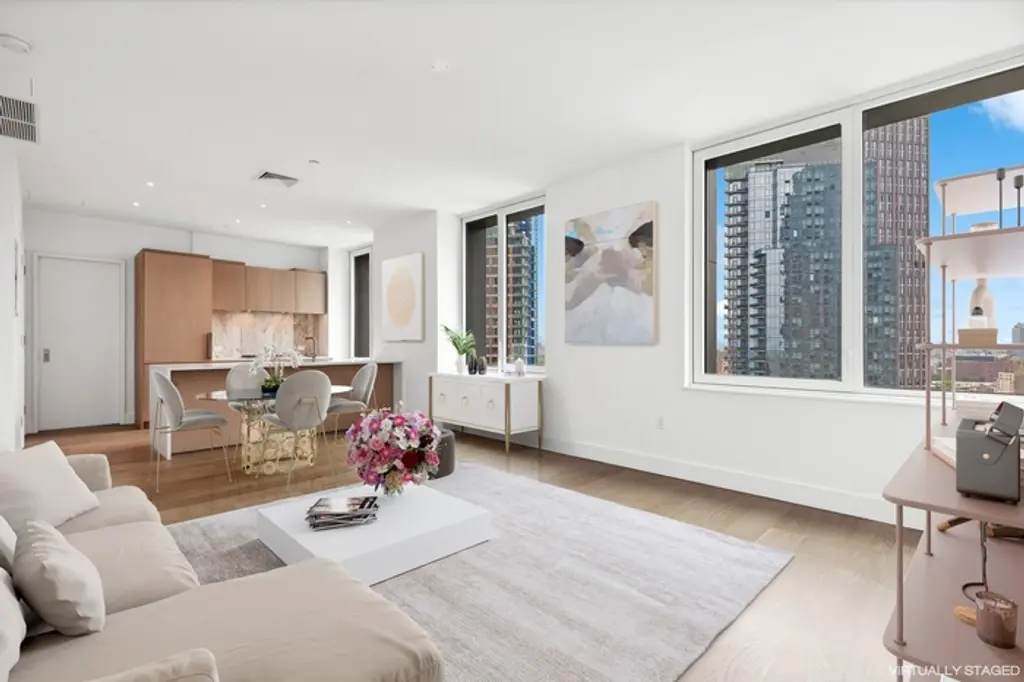
The Brooklyn Grove, #25A (Nest Seekers LLC)
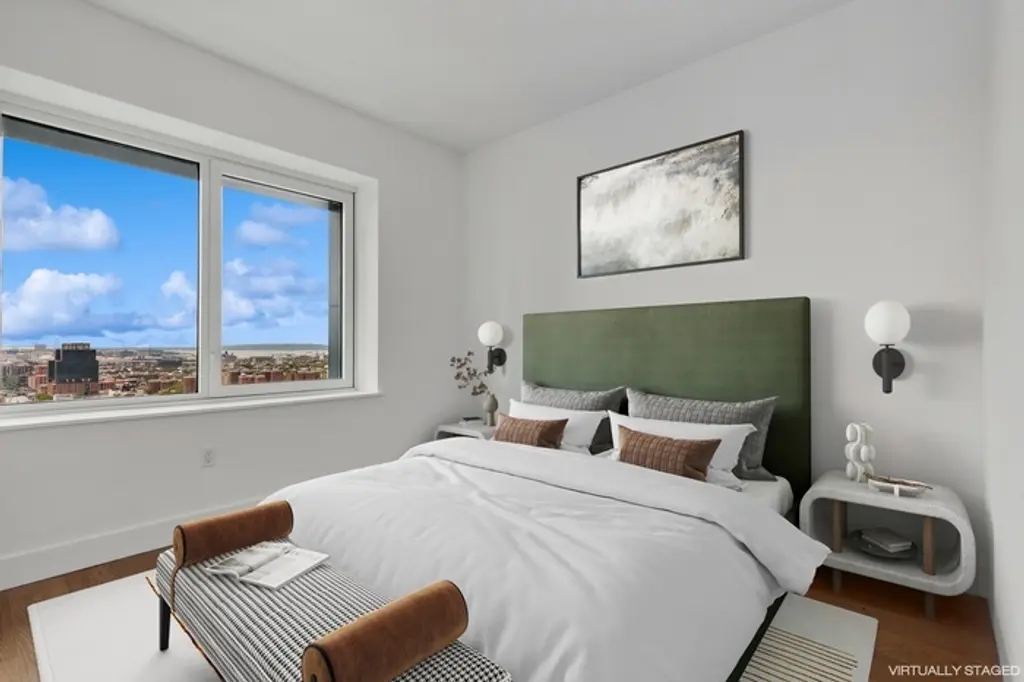
Final sponsor listings in new development buildings
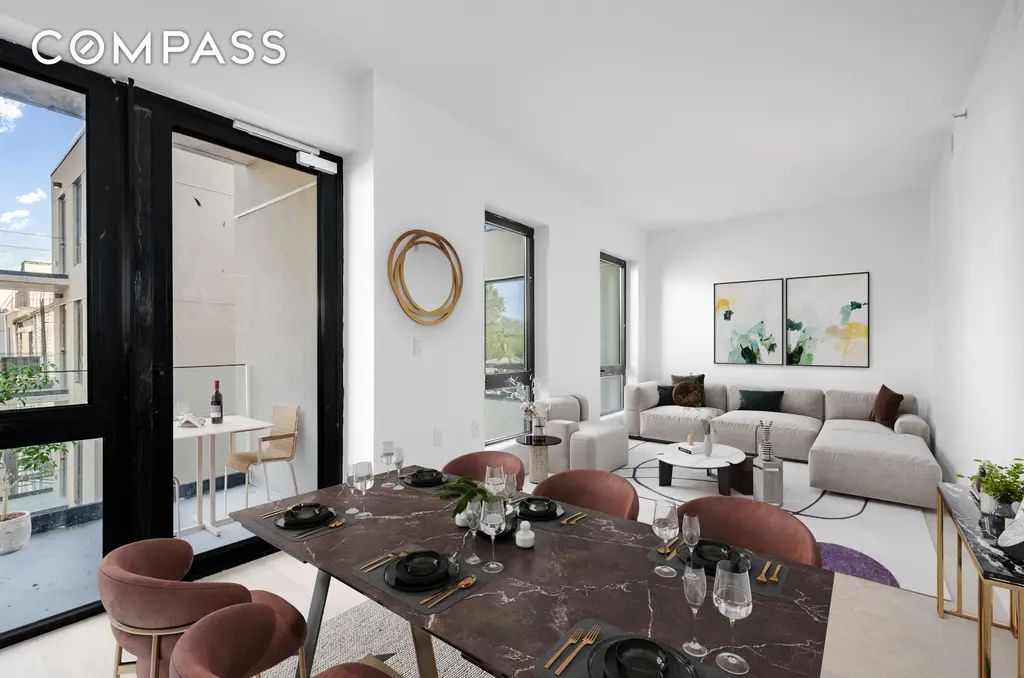
The Diana, #304S (Compass)
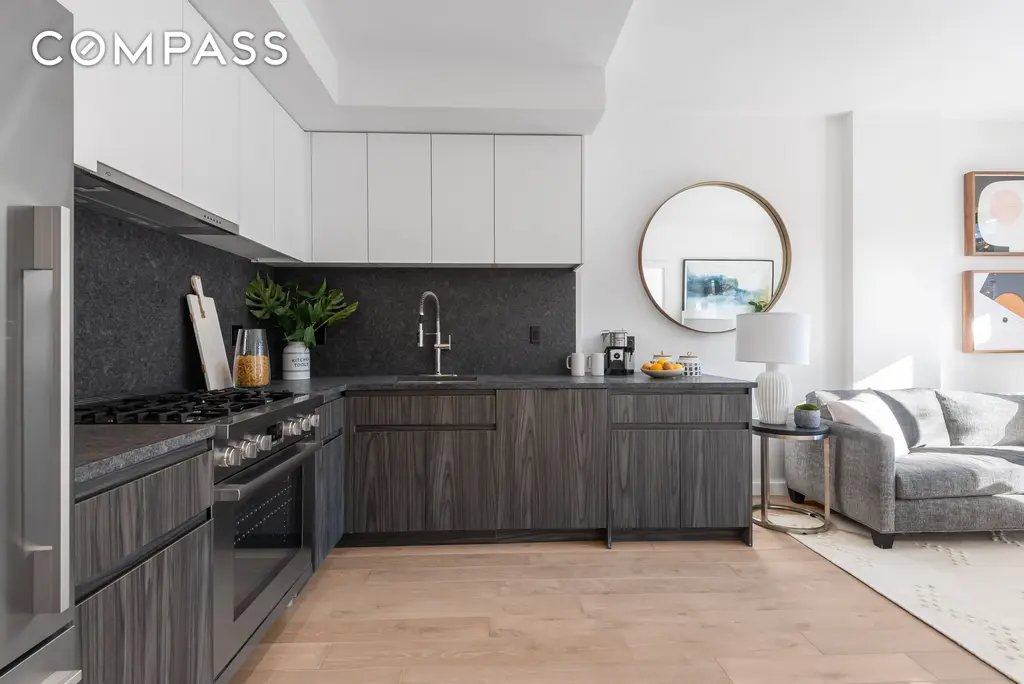
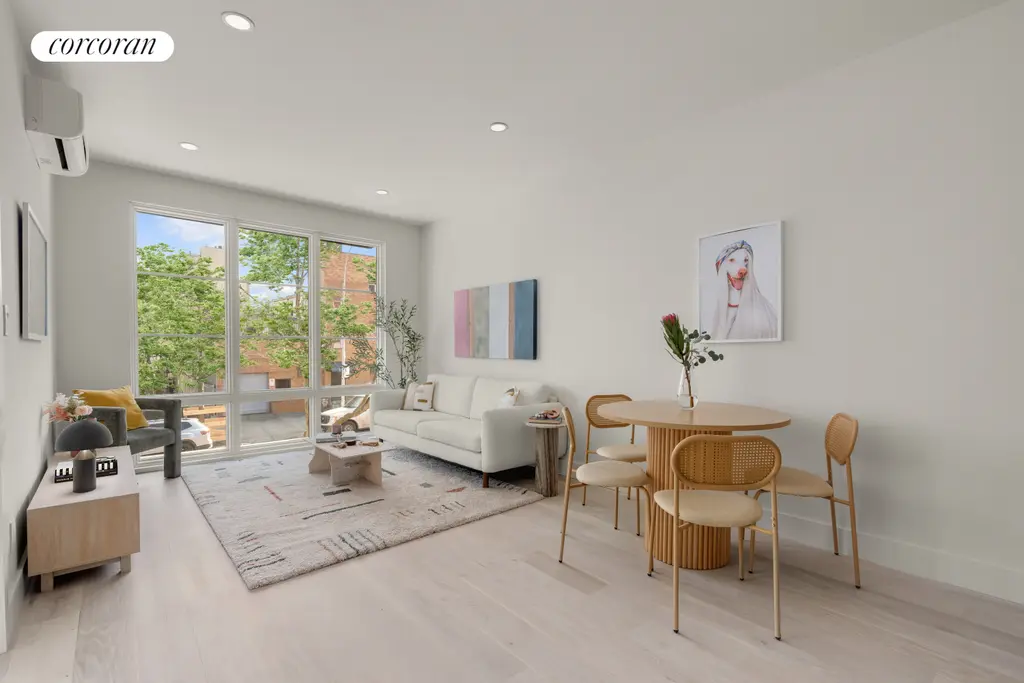
166 Washington Avenue, #4A (Corcoran Group)
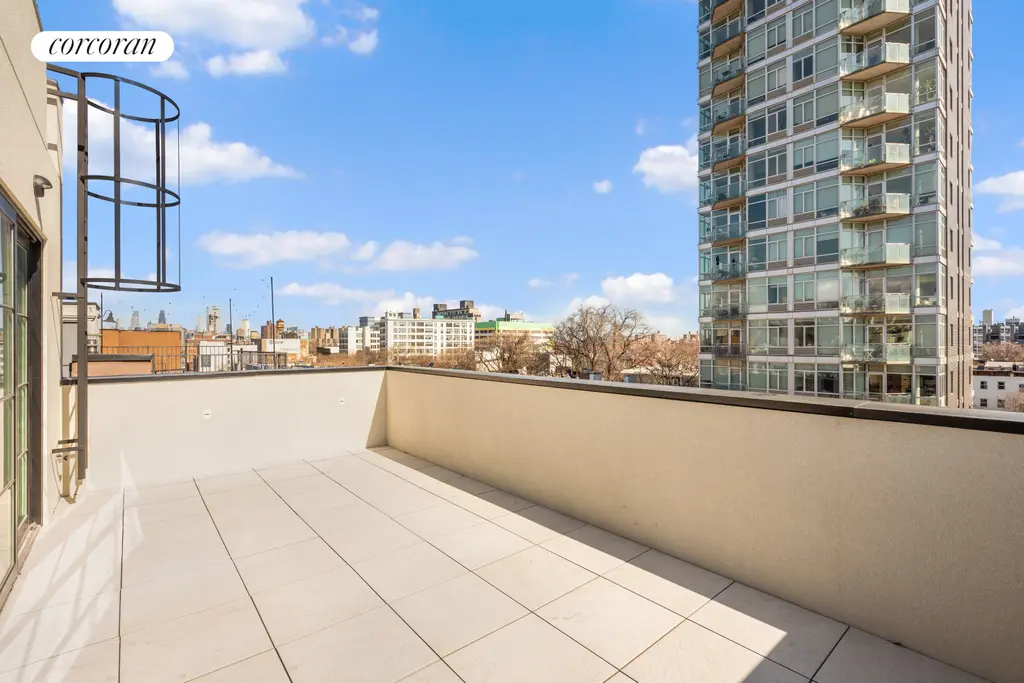
265 20th Street, #PHL
$1,825,000
South Slope - Greenwood Heights | Condominium | 3 Bedrooms, 2 Baths | 1,283 ft2
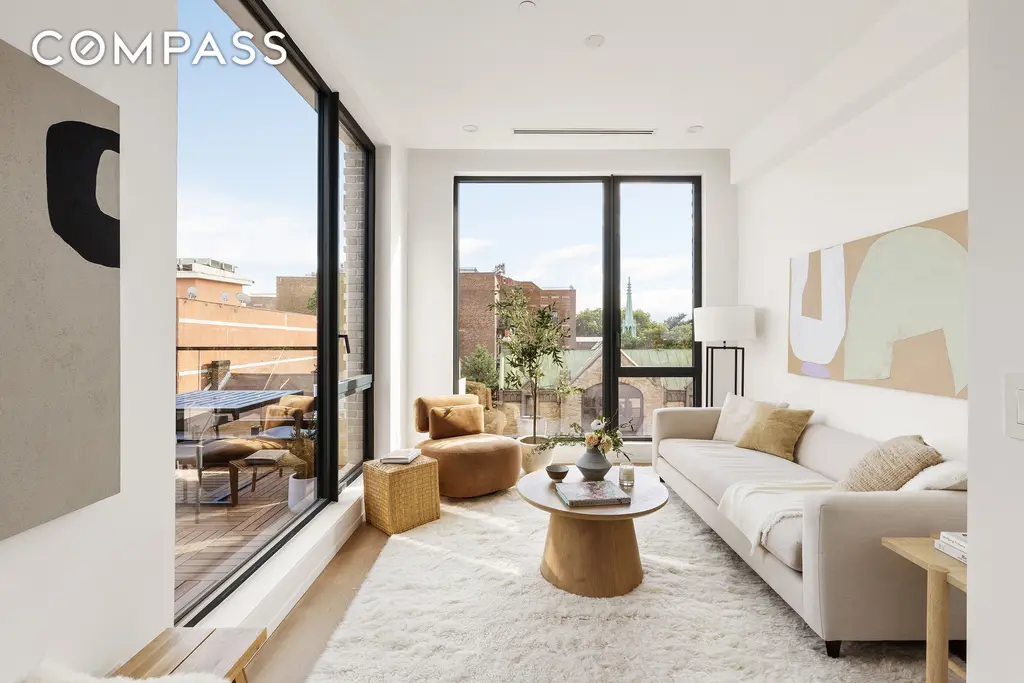
265 20th Street, #PHL (Compass)
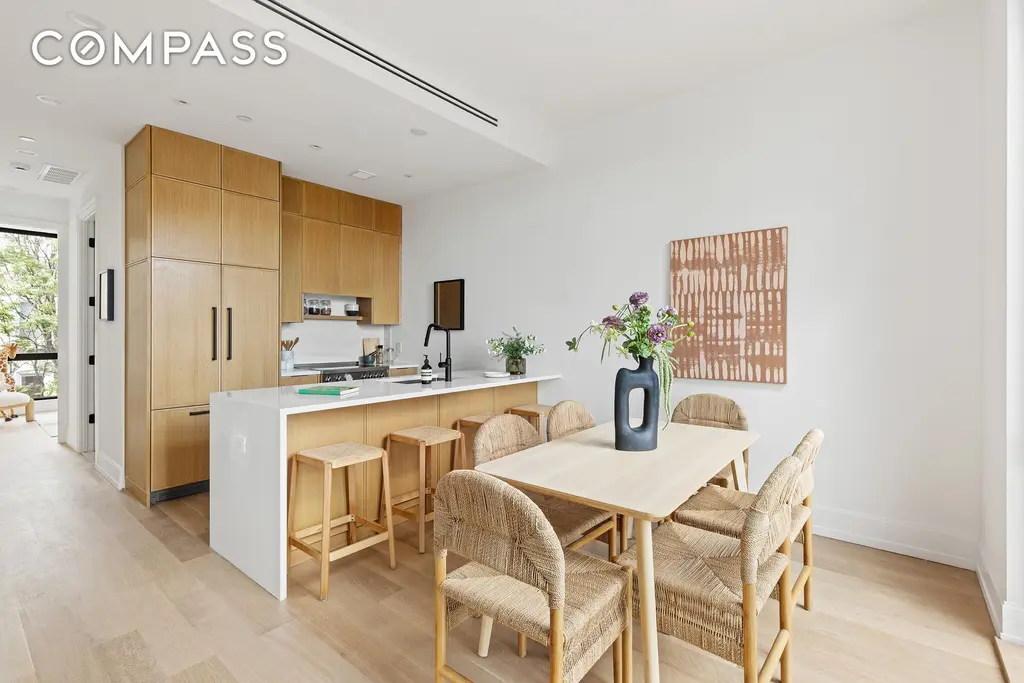
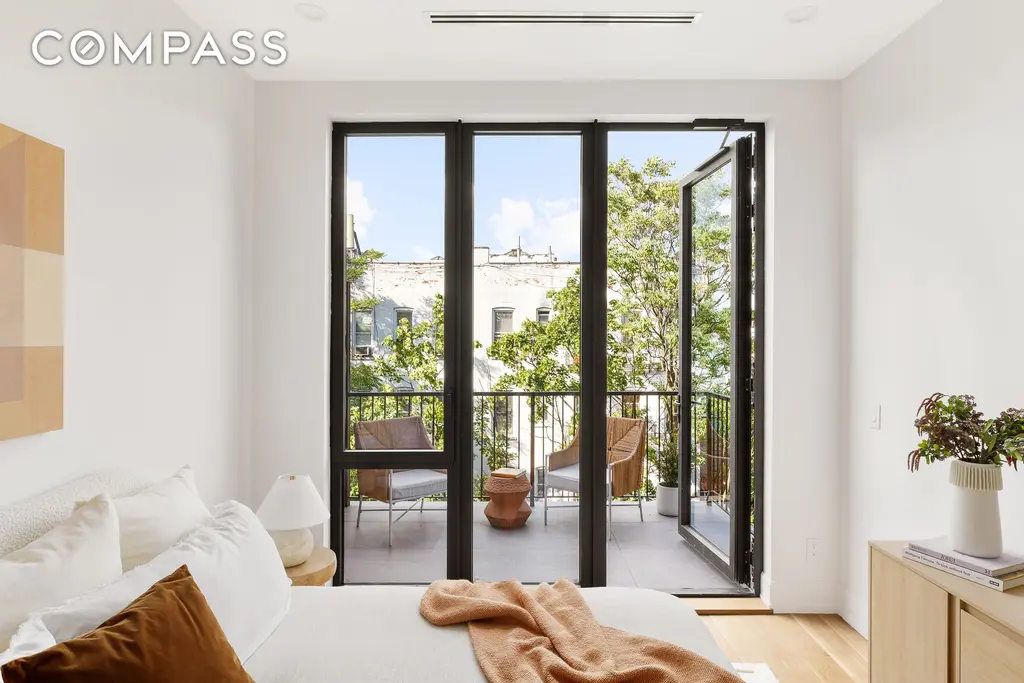
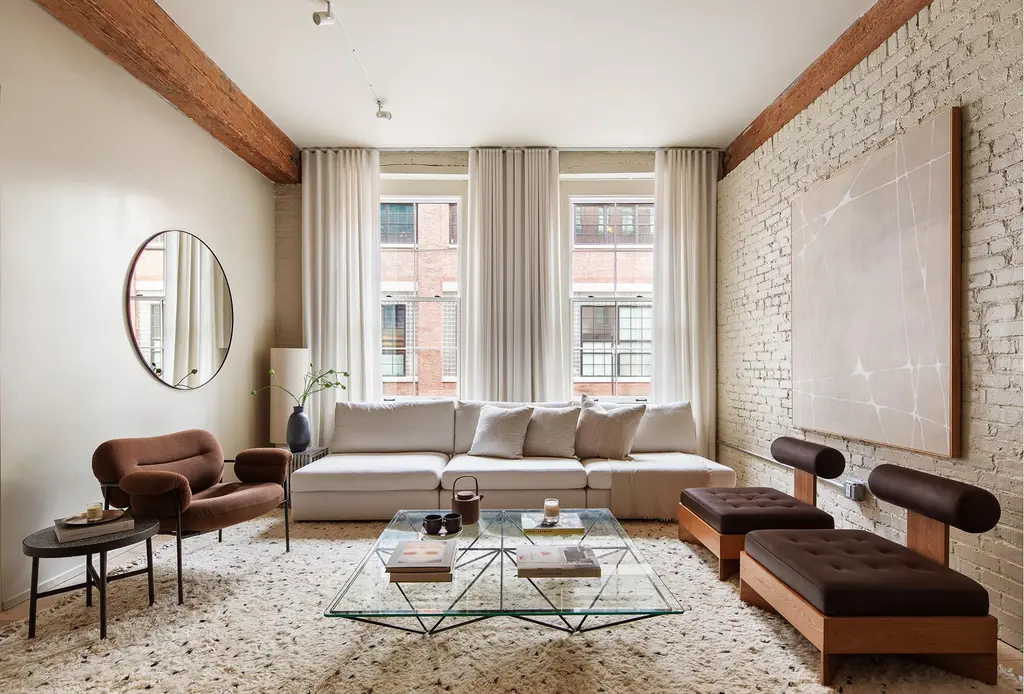
168 Plymouth, #THB (Douglas Elliman Real Estate)
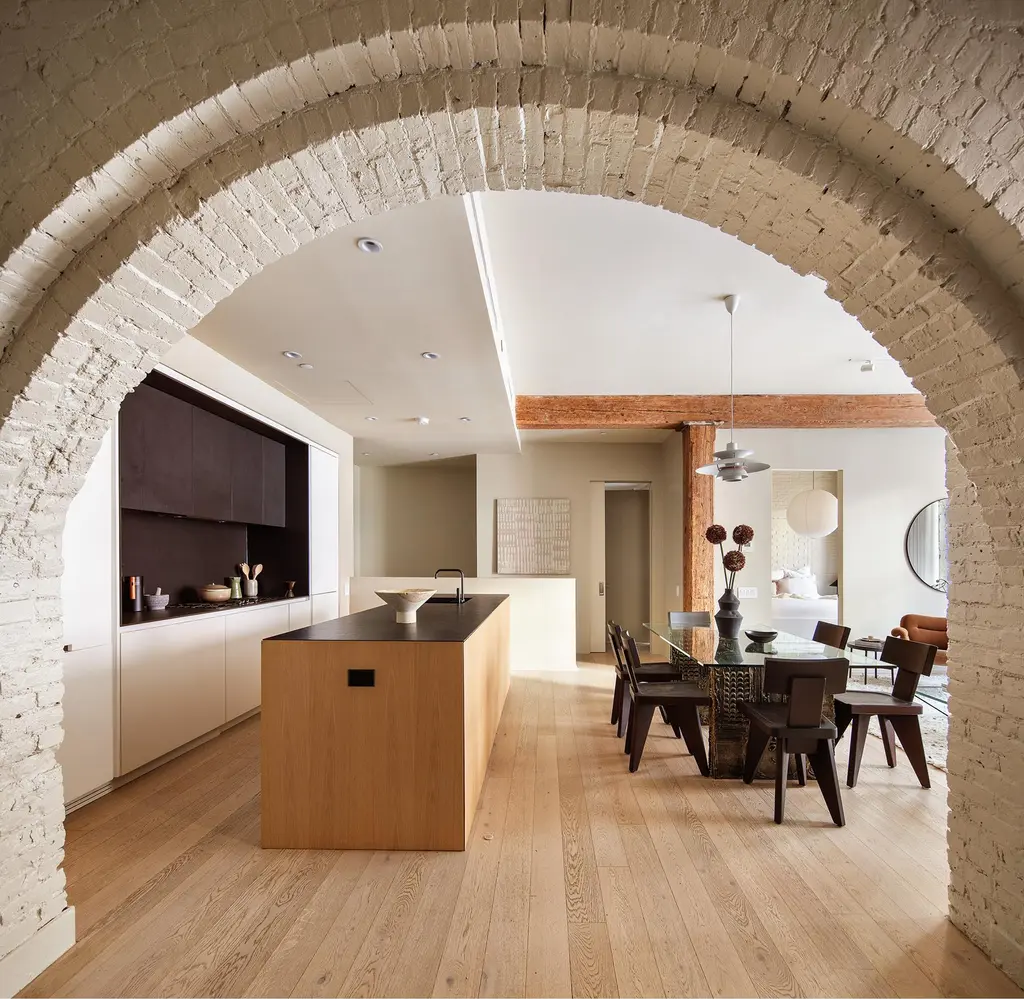
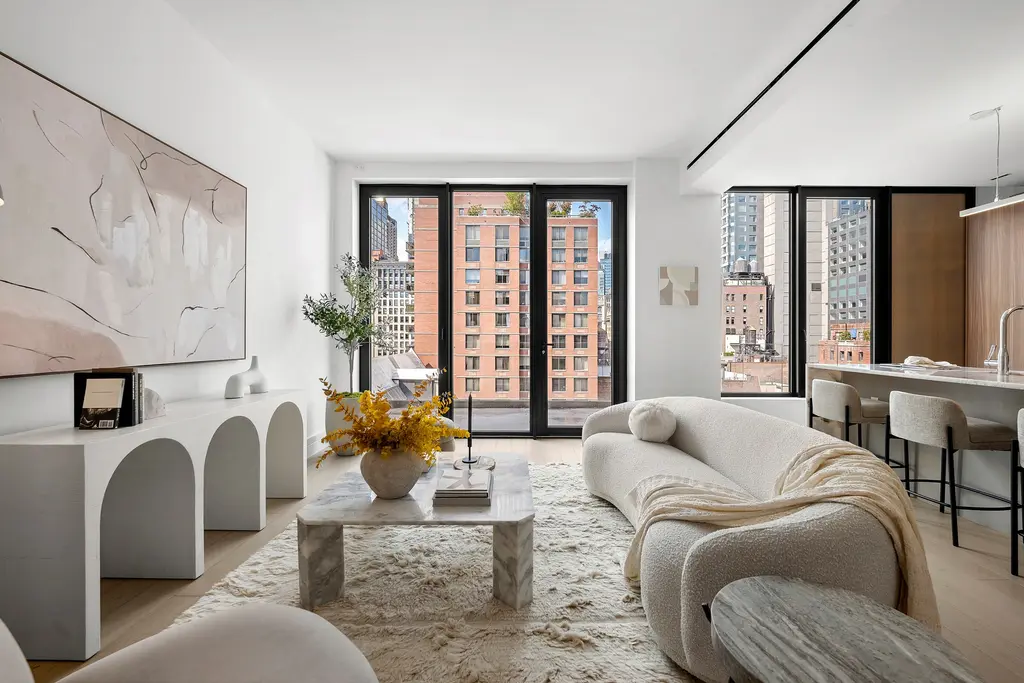
The Lexi, #PHA (Nest Seekers LLC)
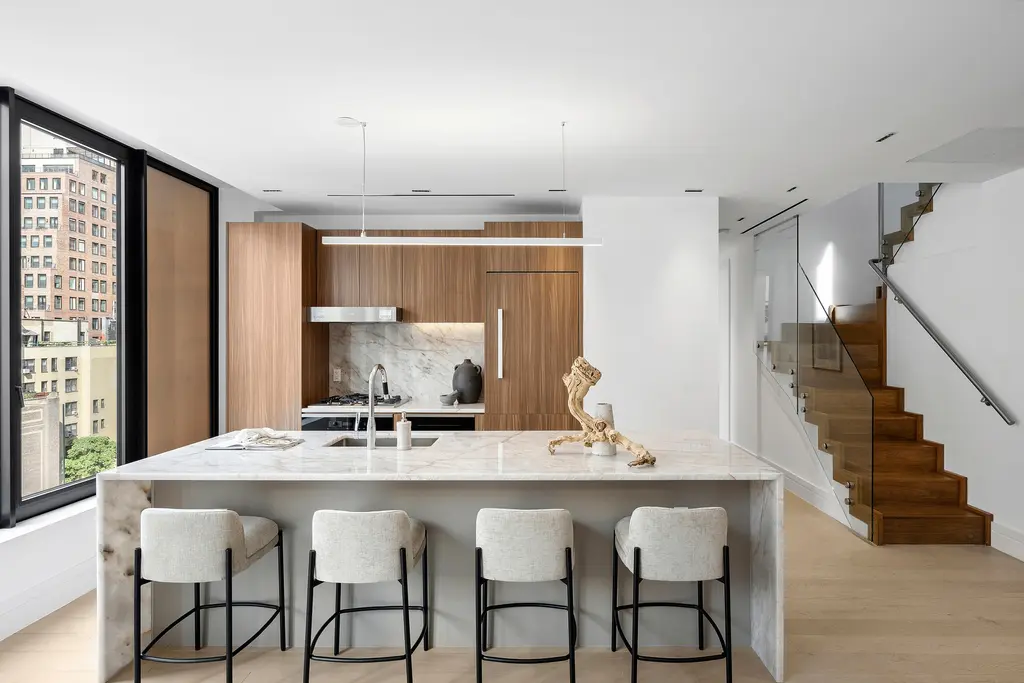


Gracie Green, #PENTHOUSE9 (Douglas Elliman Real Estate)
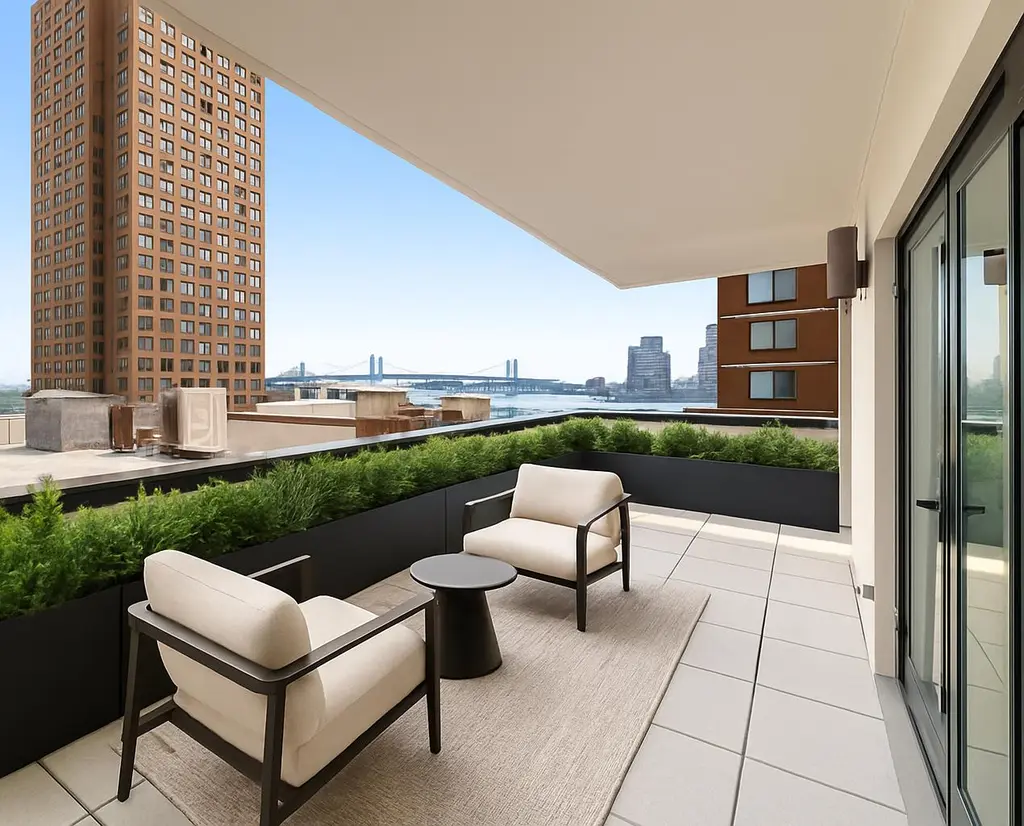
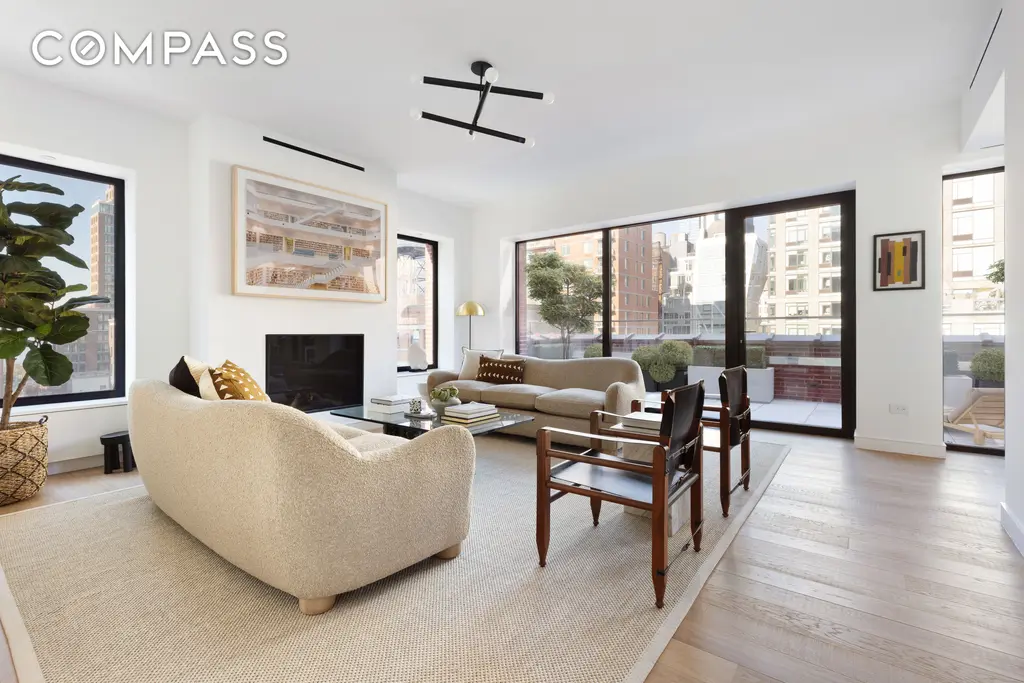
Park House Chelsea, #8W (Compass)
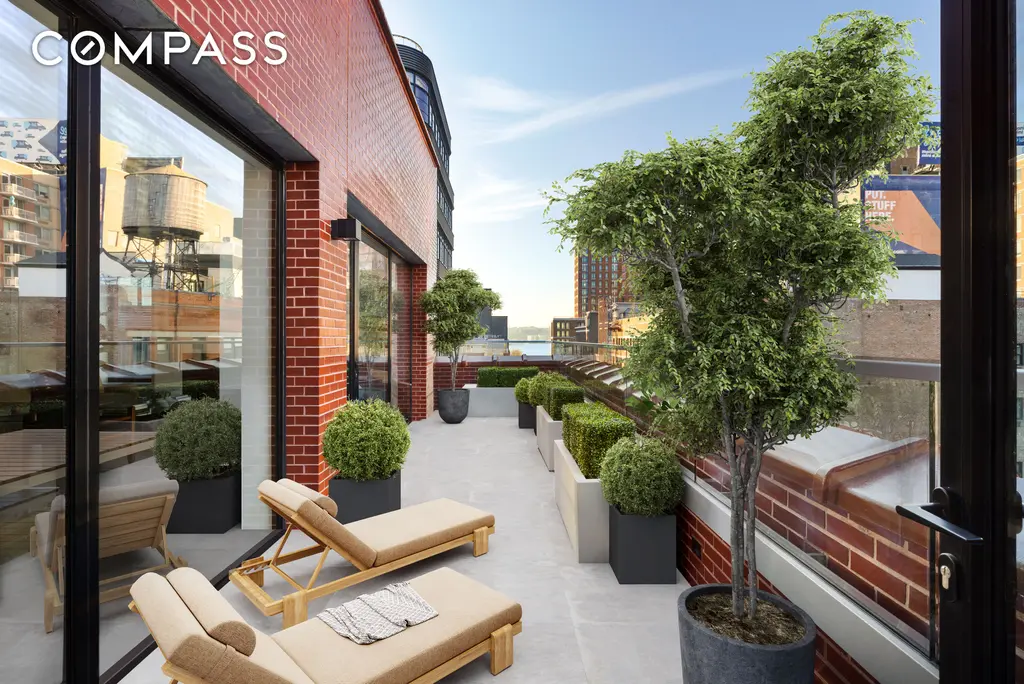
Would you like to tour any of these properties?
Just complete the info below.
Or call us at (212) 755-5544
Would you like to tour any of these properties?

Contributing Writer
Cait Etherington
Cait Etherington has over twenty years of experience working as a journalist and communications consultant. Her articles and reviews have been published in newspapers and magazines across the United States and internationally. An experienced financial writer, Cait is committed to exposing the human side of stories about contemporary business, banking and workplace relations. She also enjoys writing about trends, lifestyles and real estate in New York City where she lives with her family in a cozy apartment on the twentieth floor of a Manhattan high rise.





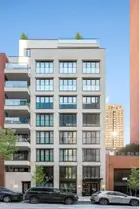




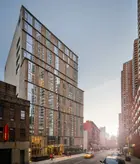


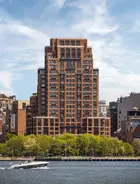
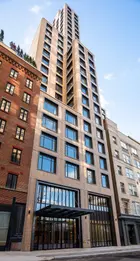


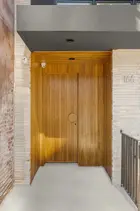
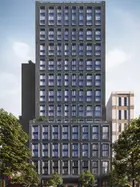
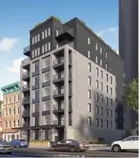




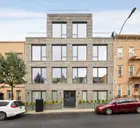



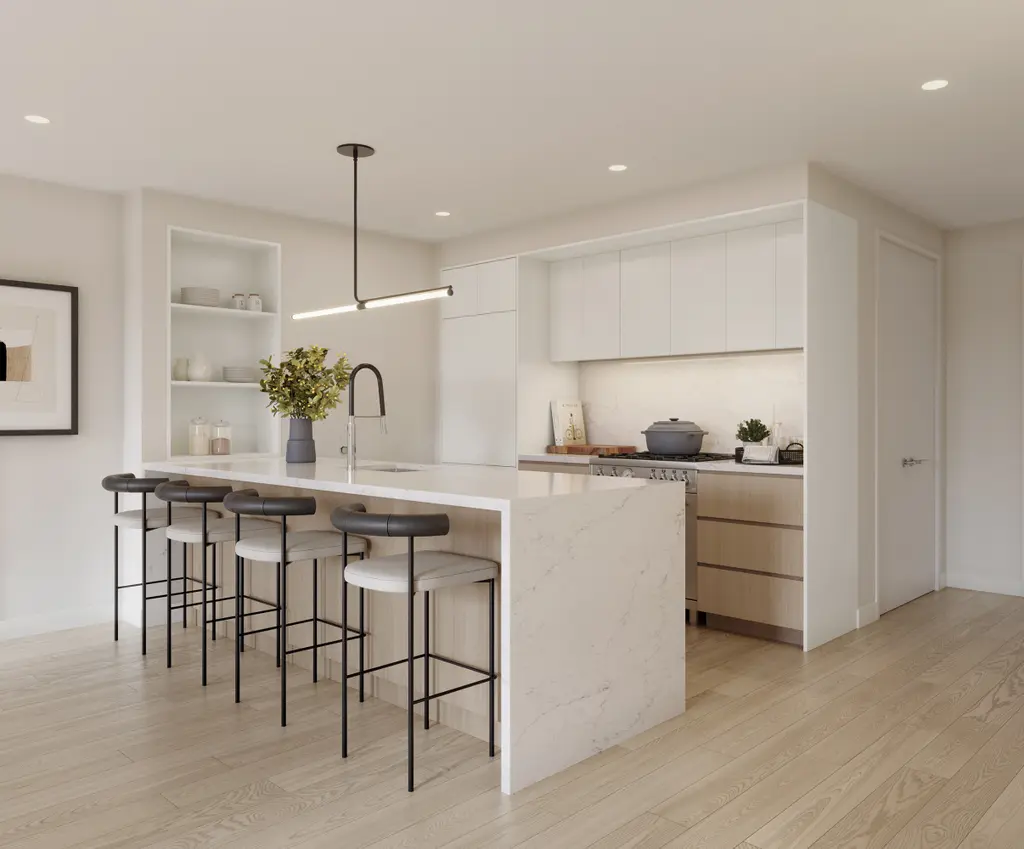
 6sqft delivers the latest on real estate, architecture, and design, straight from New York City.
6sqft delivers the latest on real estate, architecture, and design, straight from New York City.
